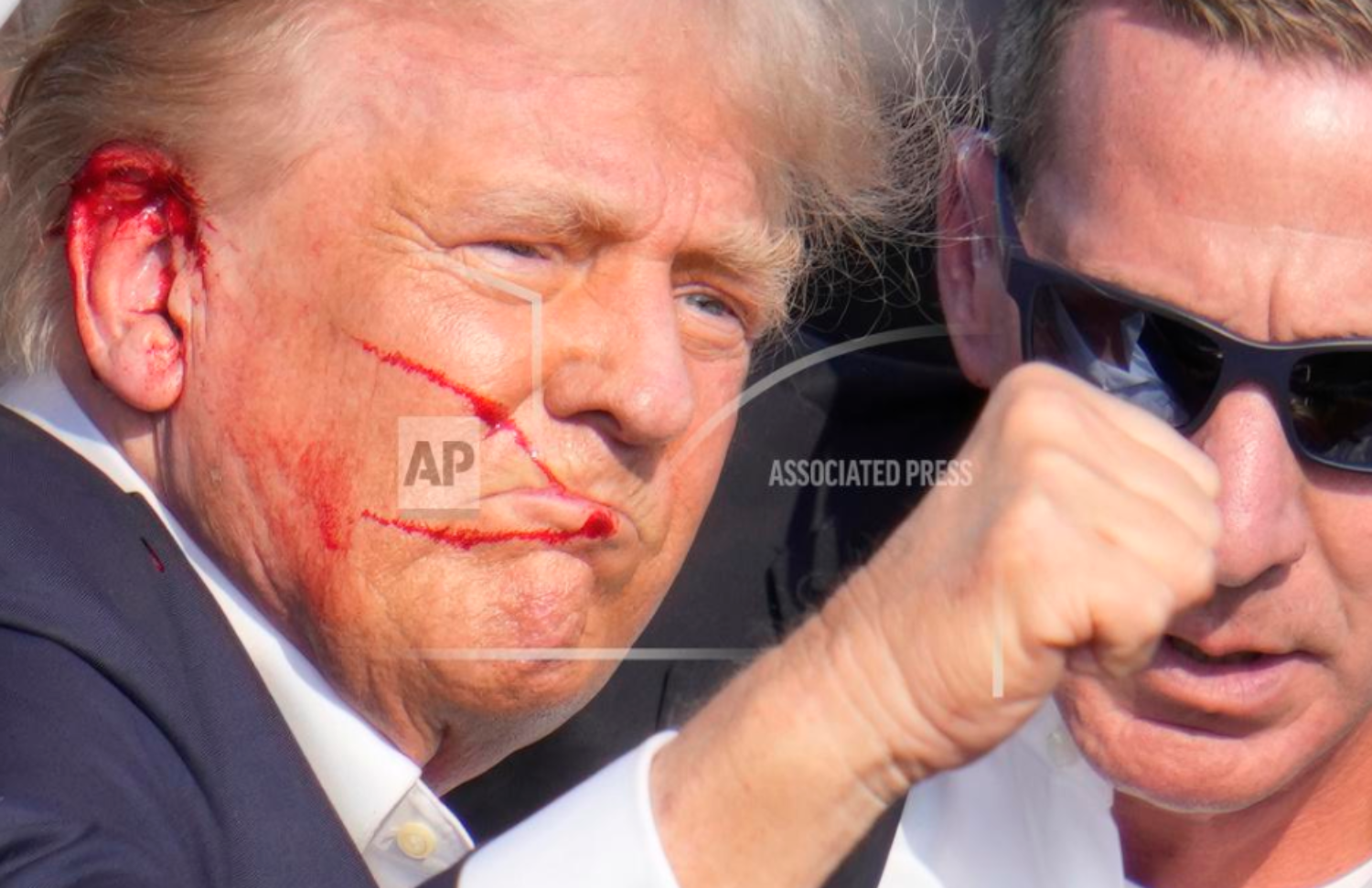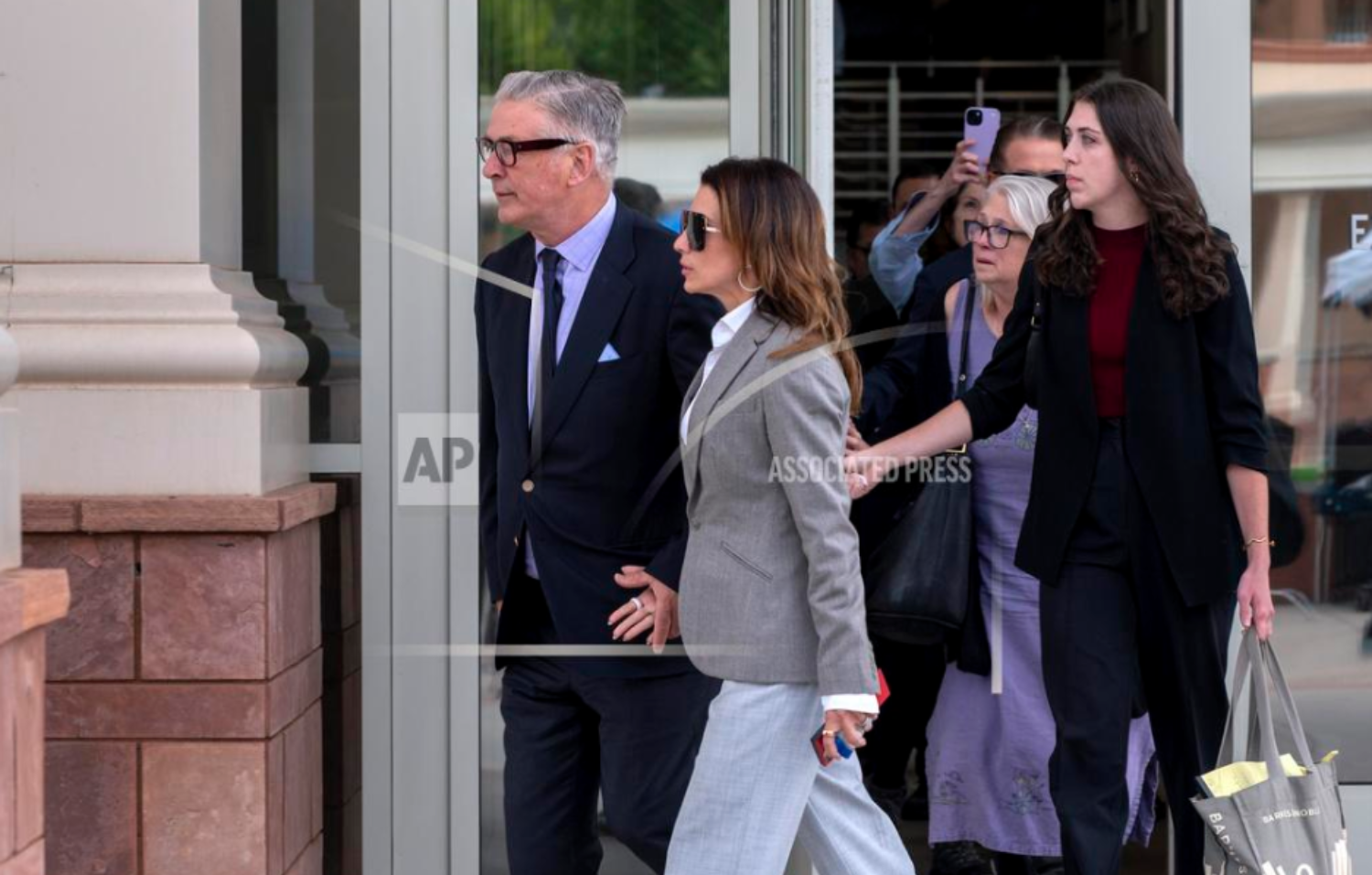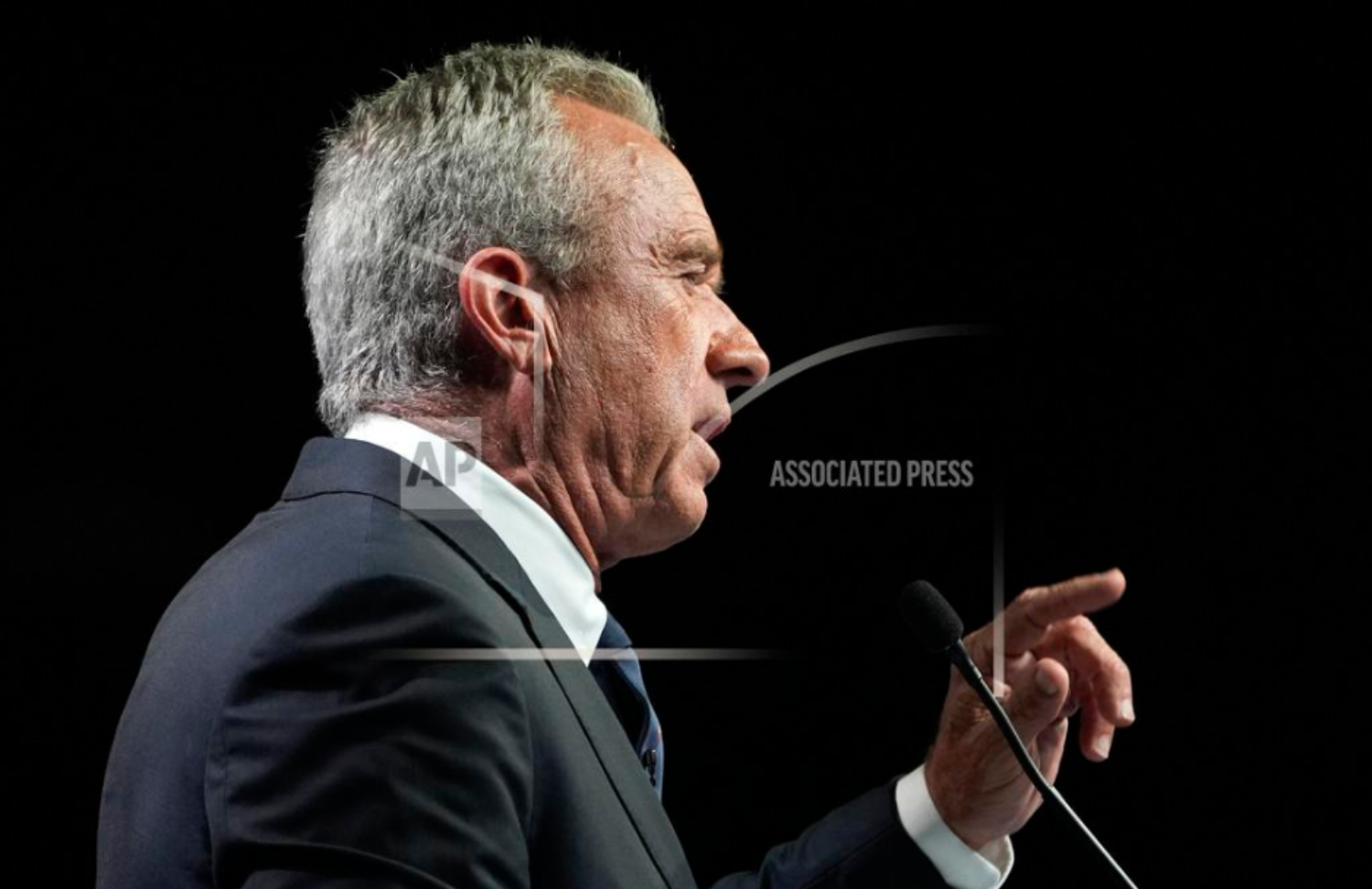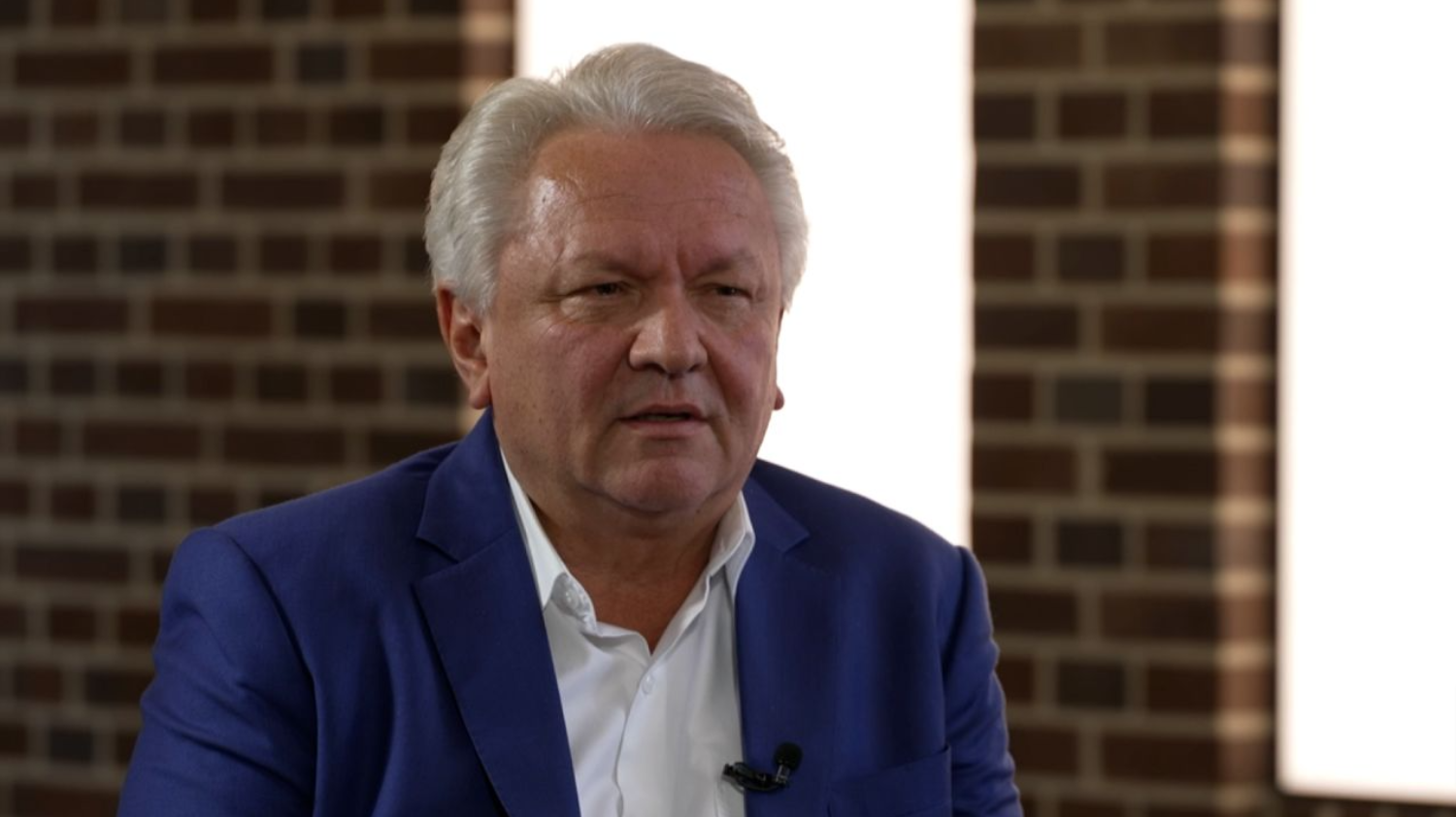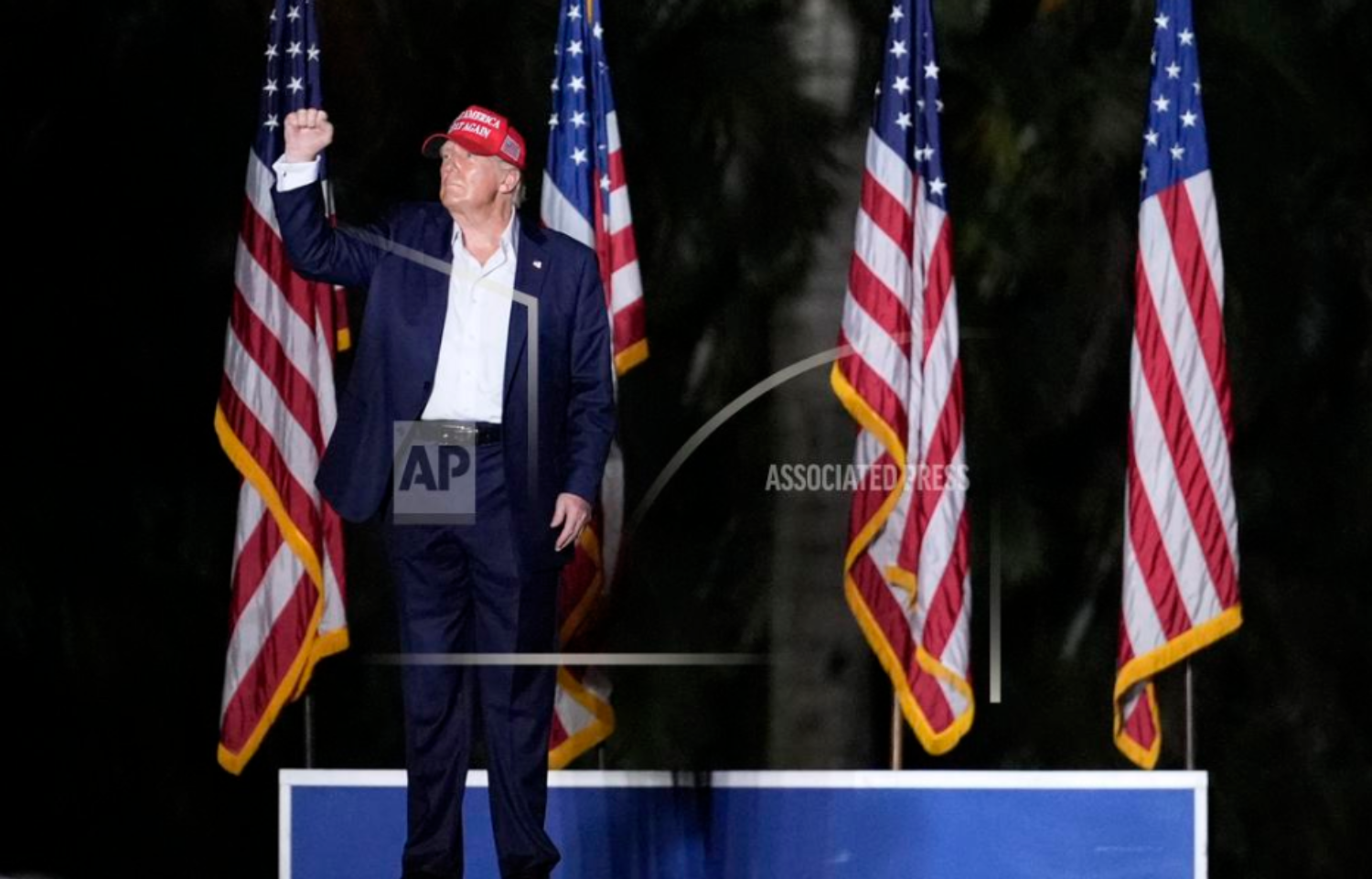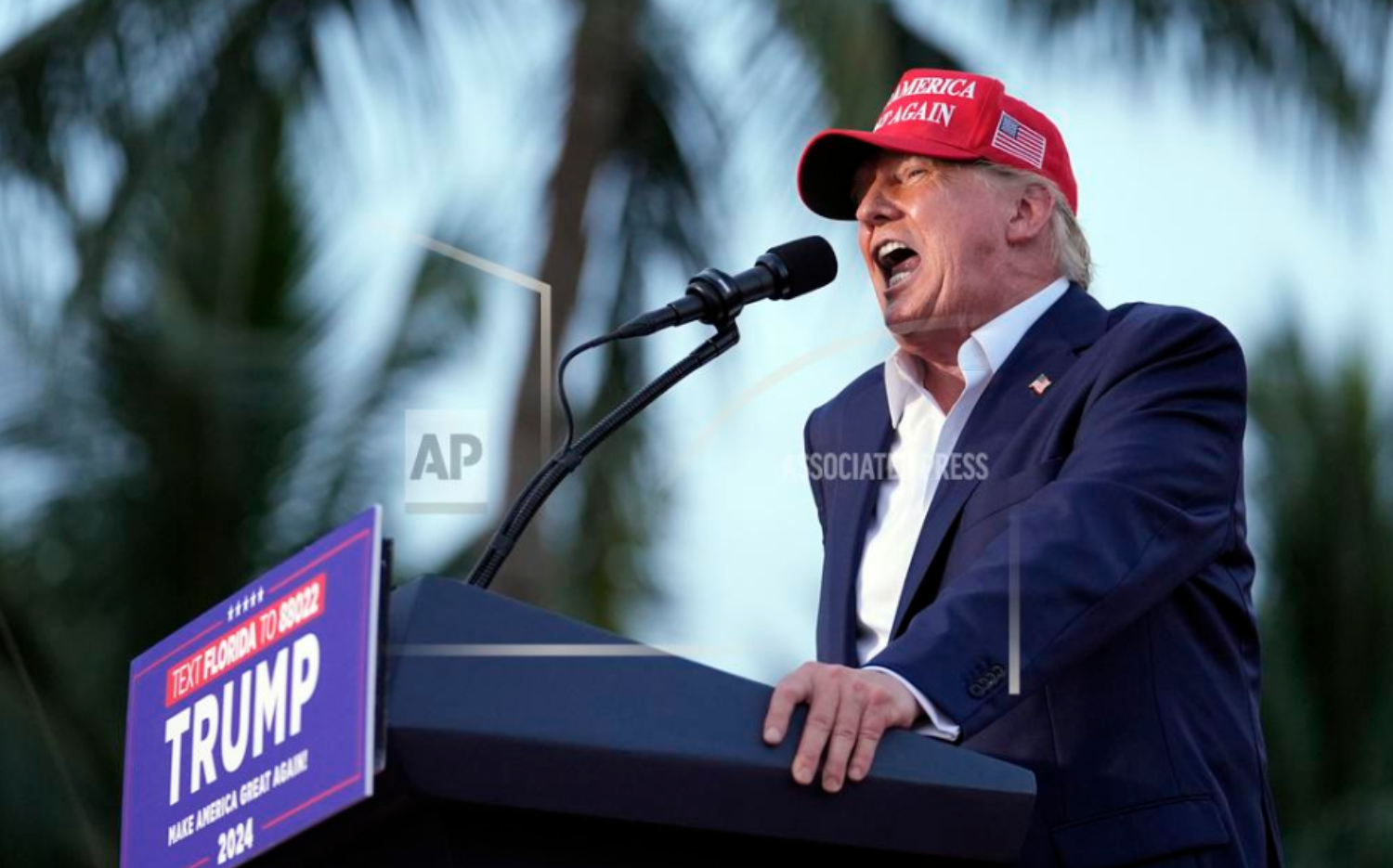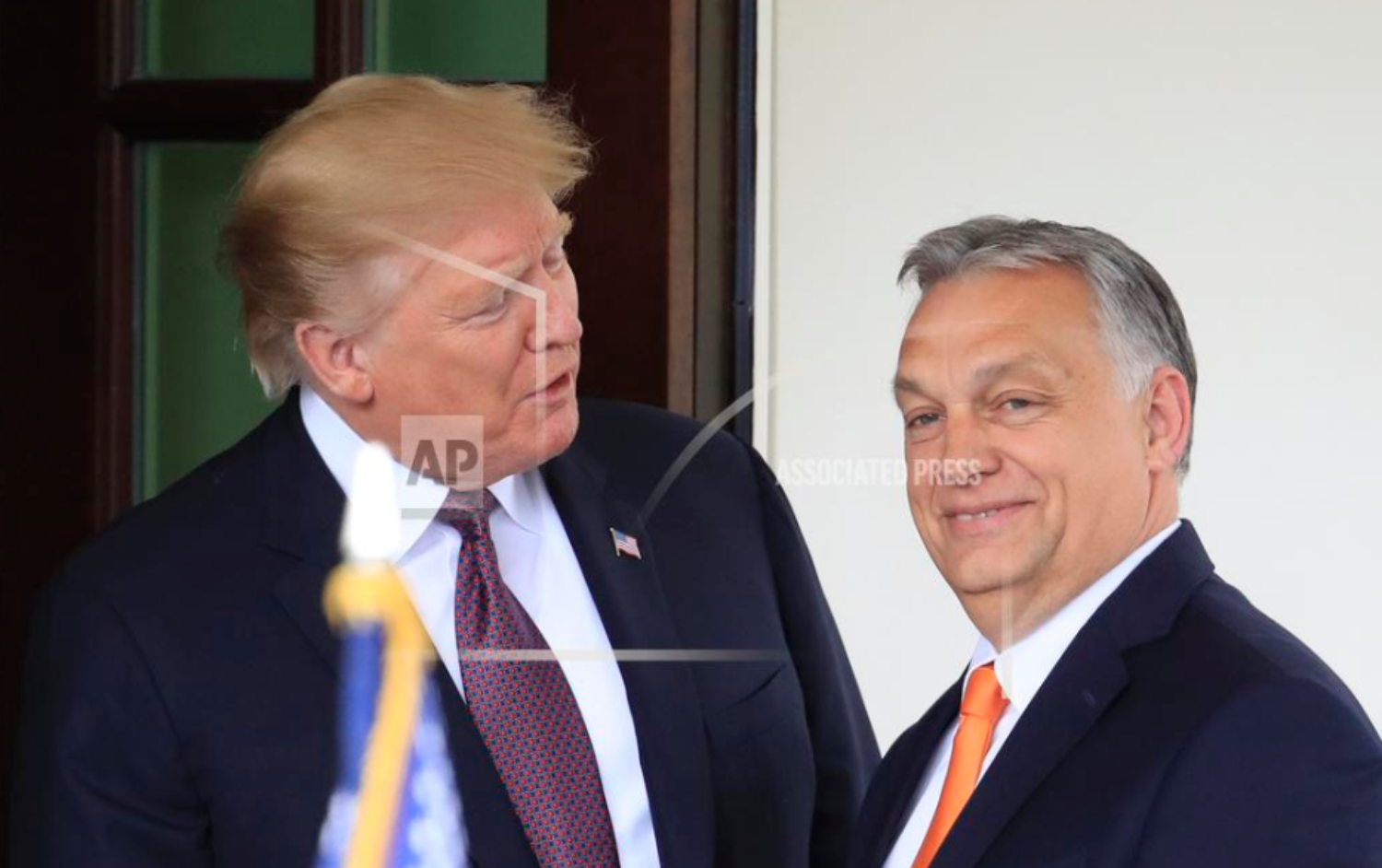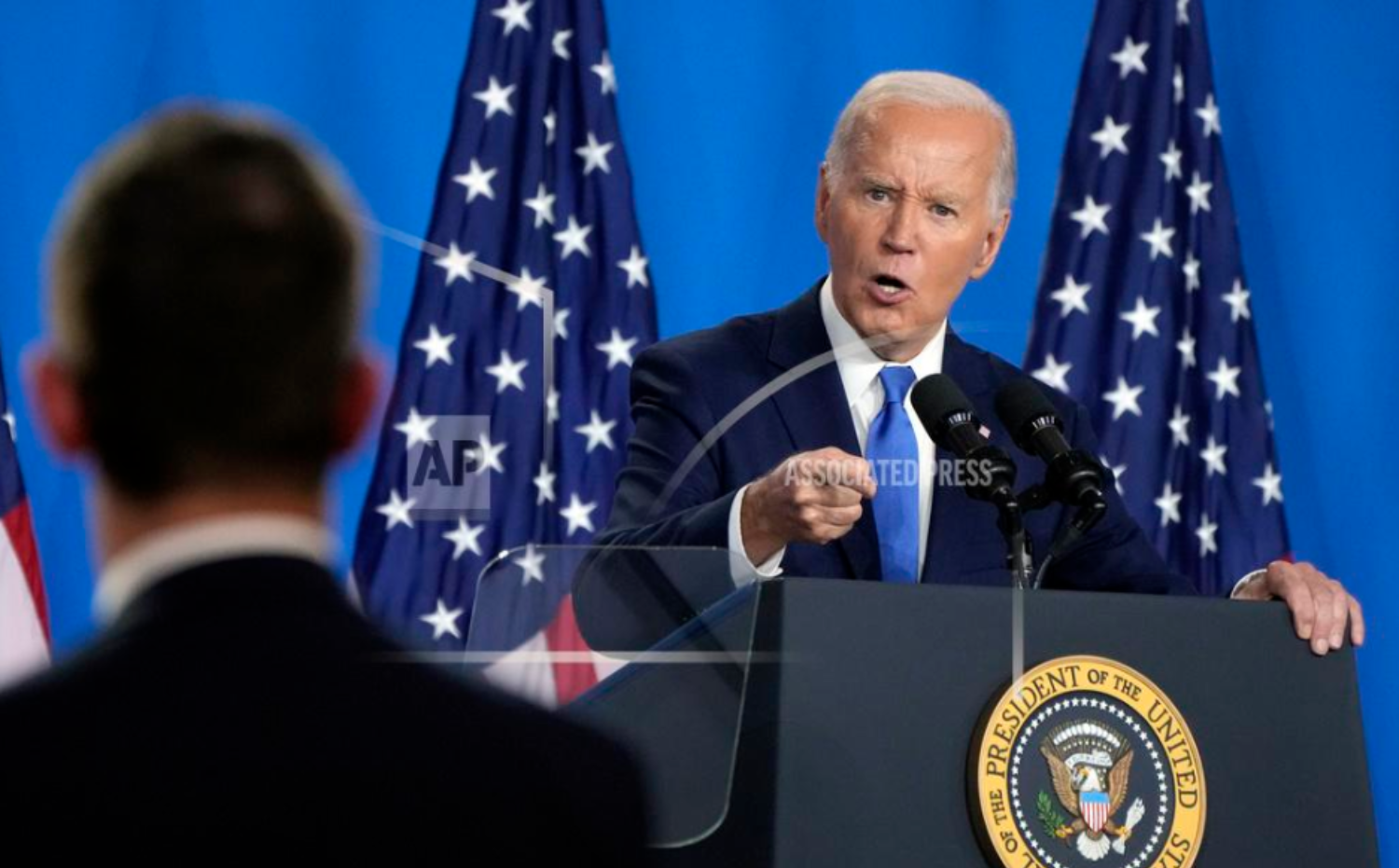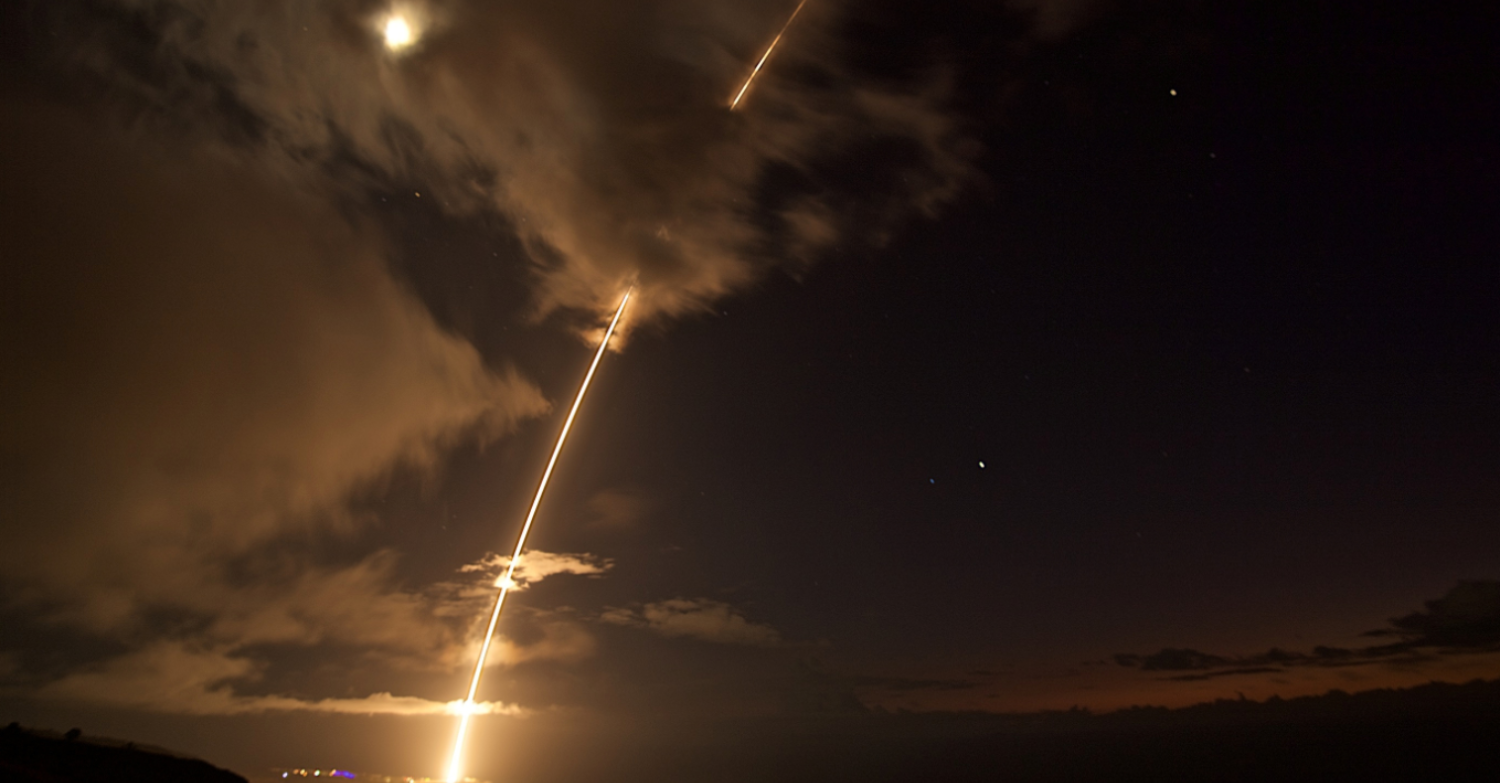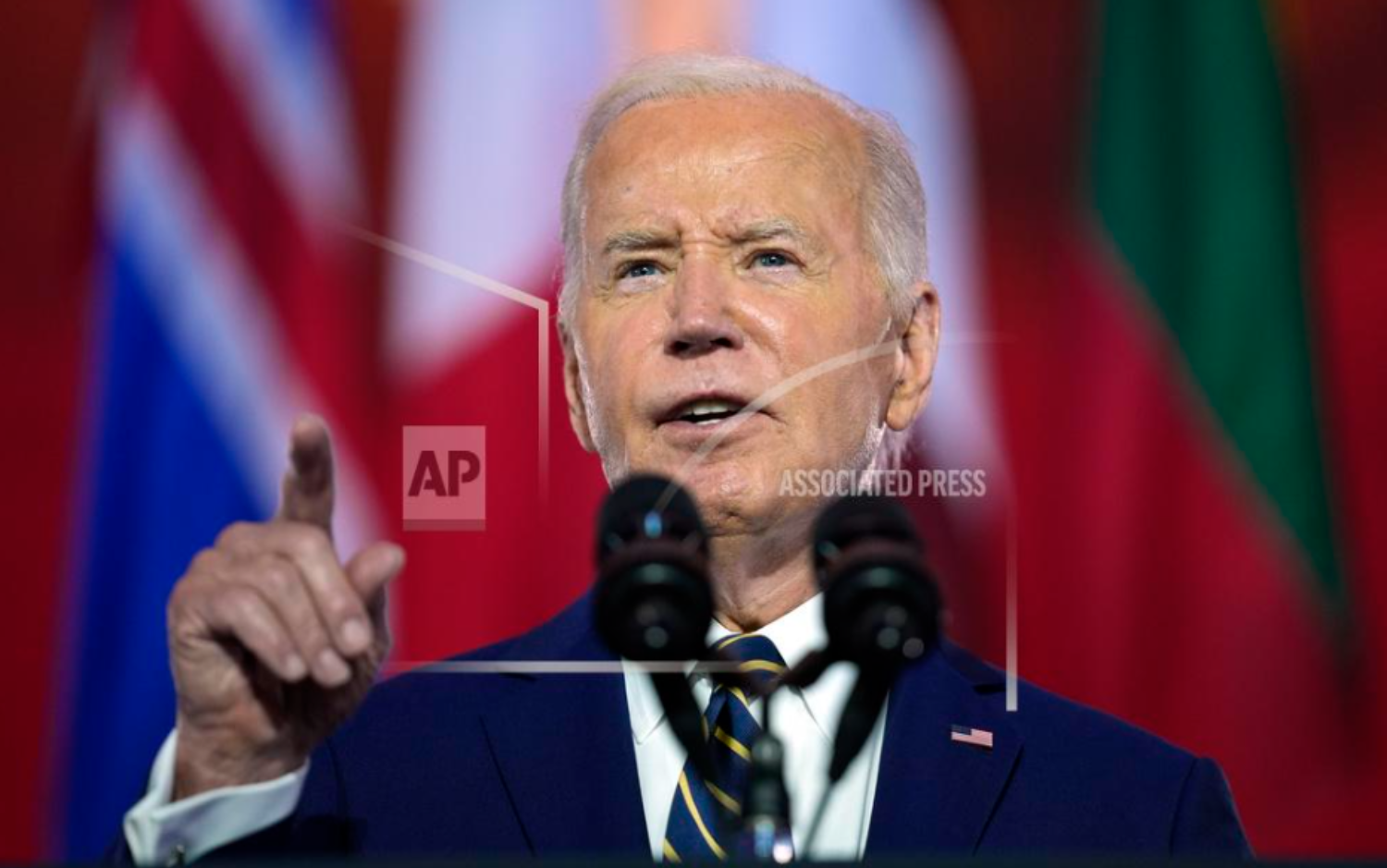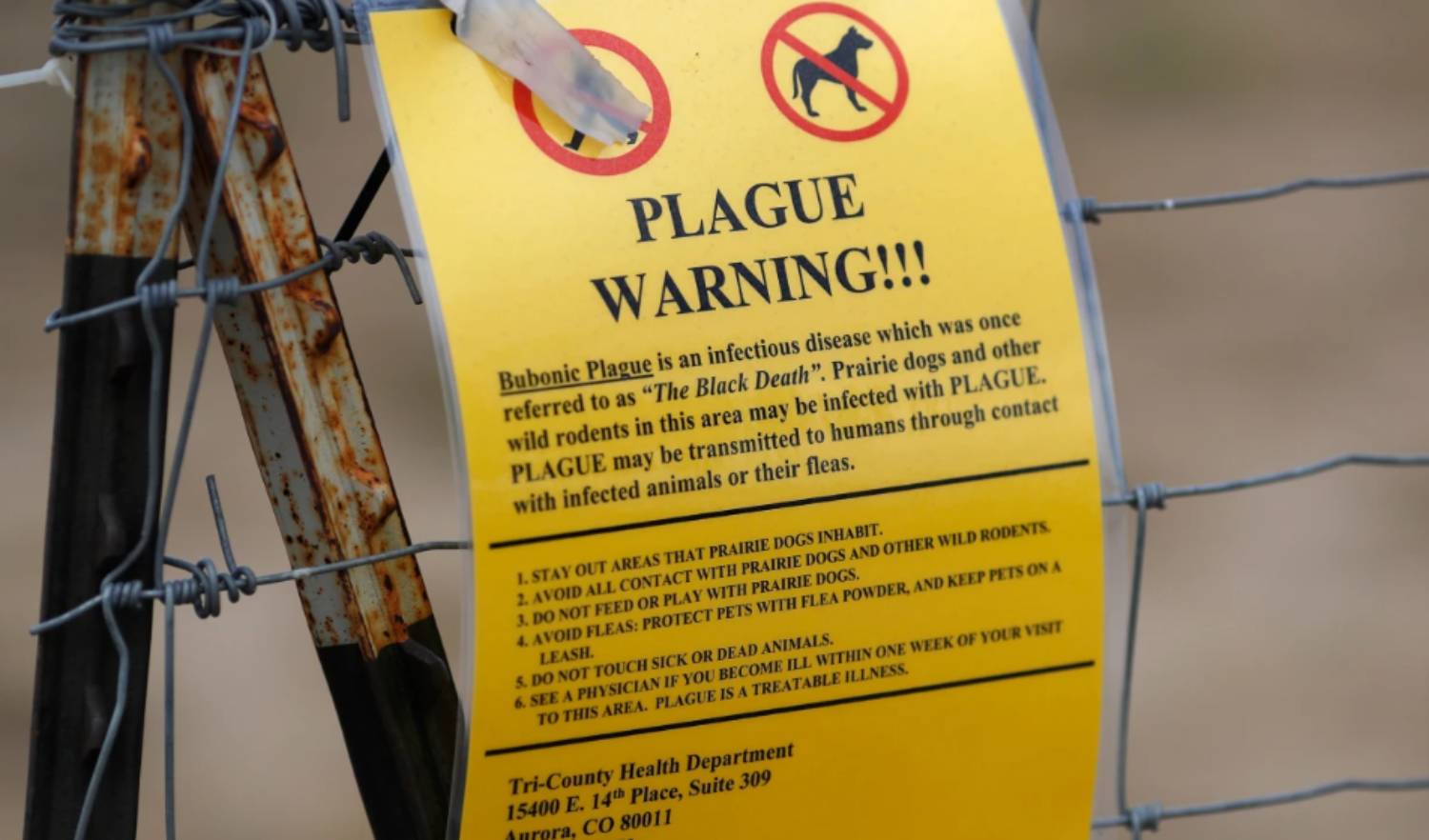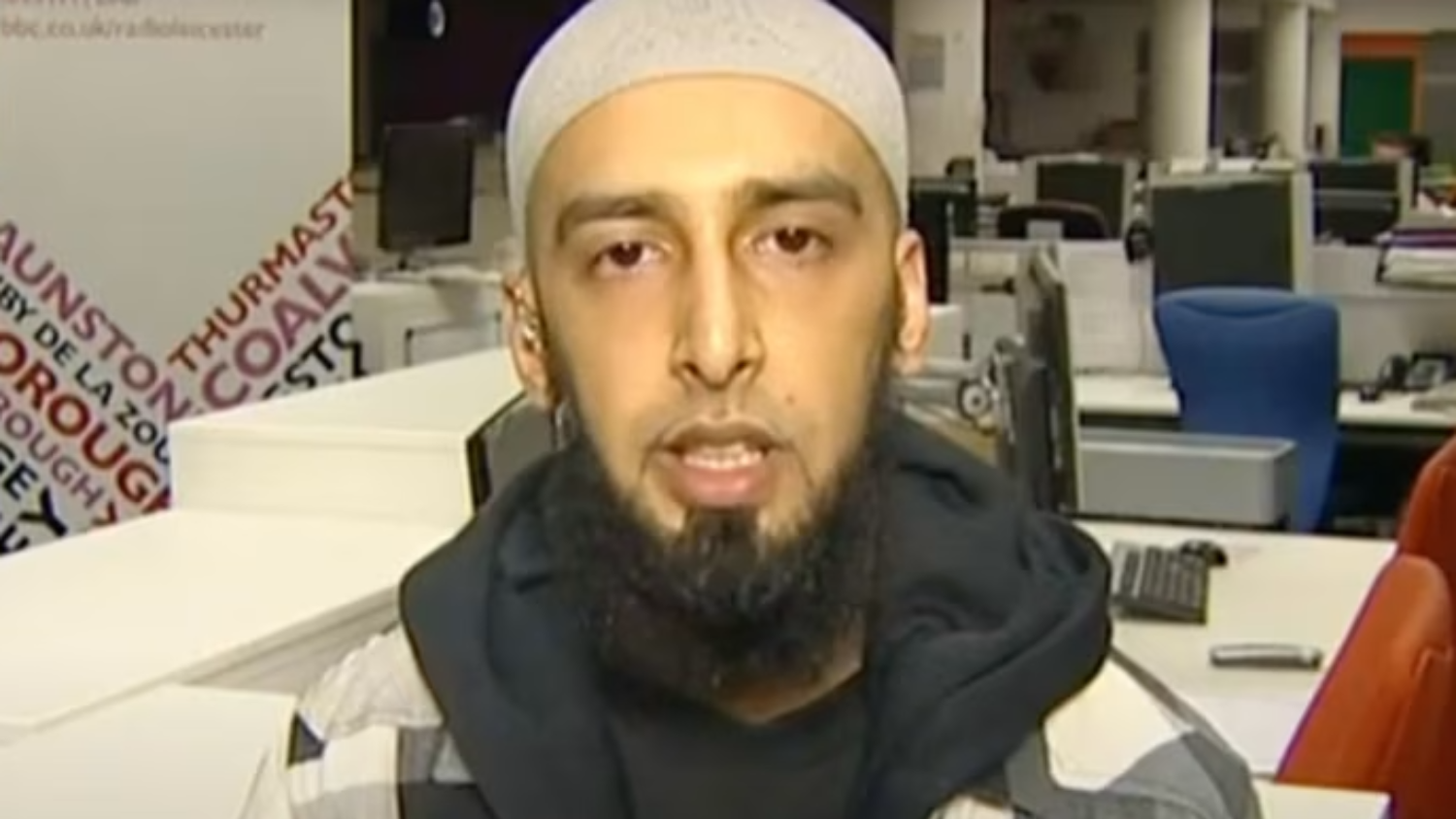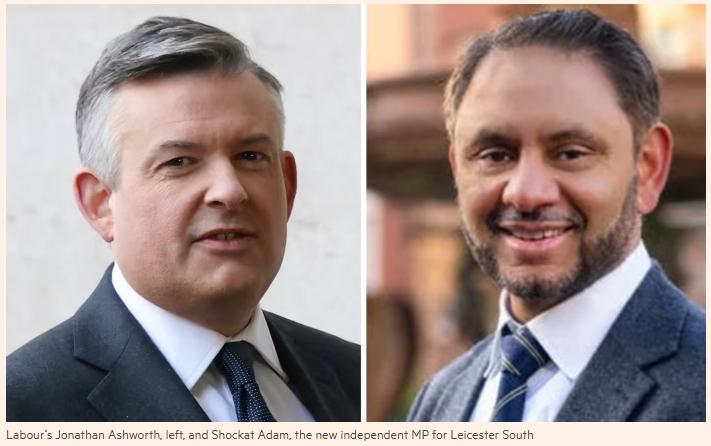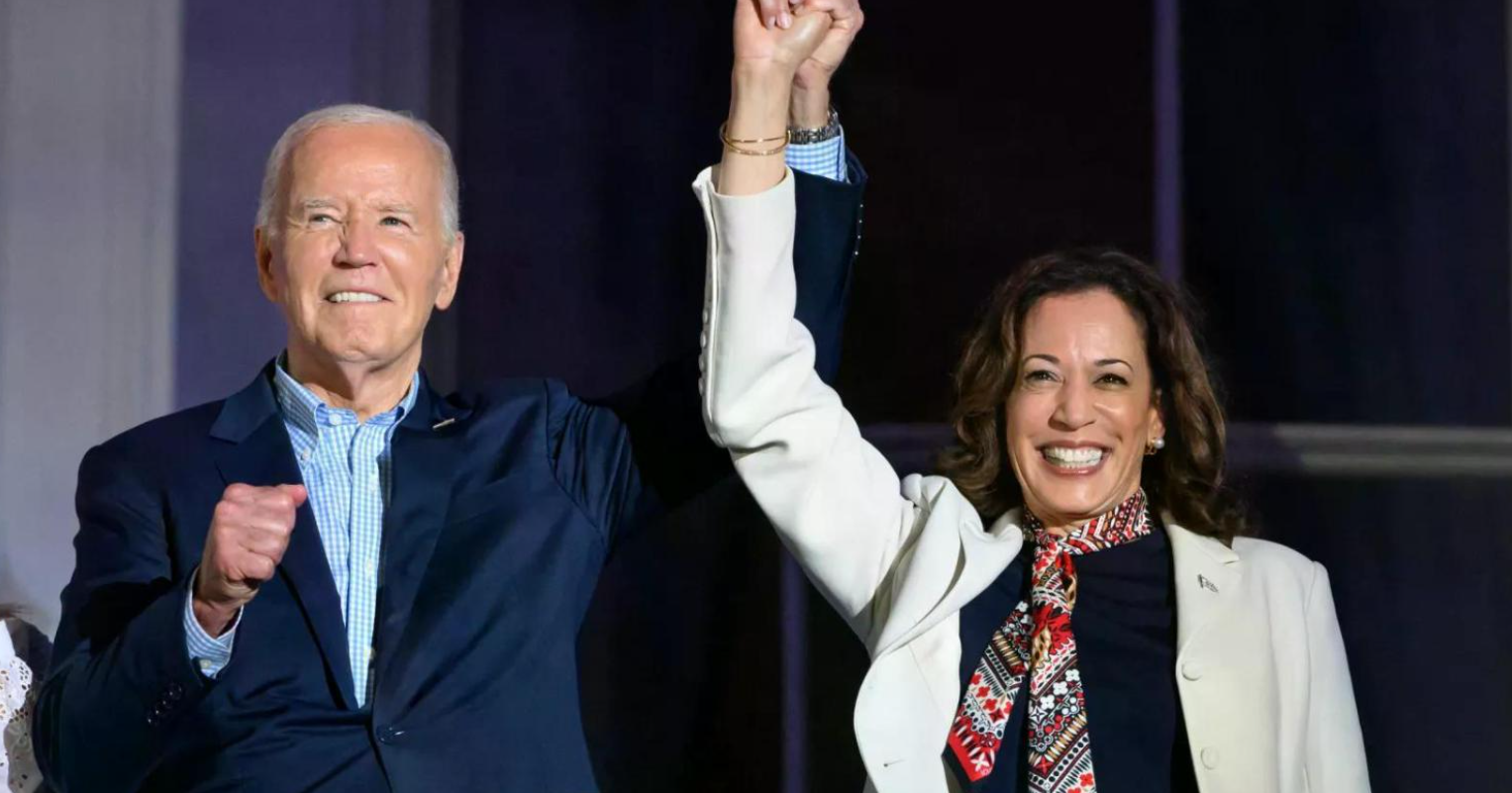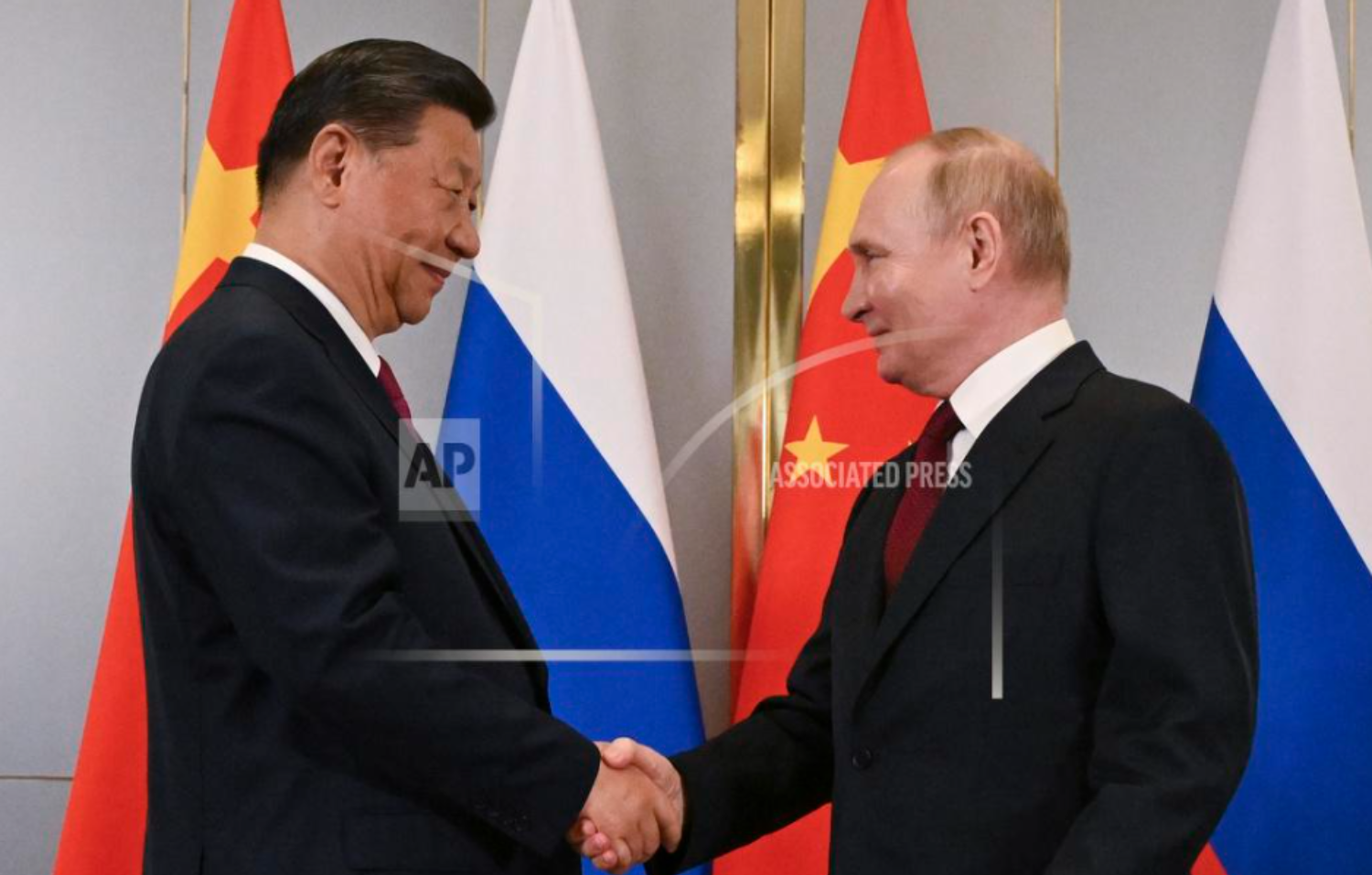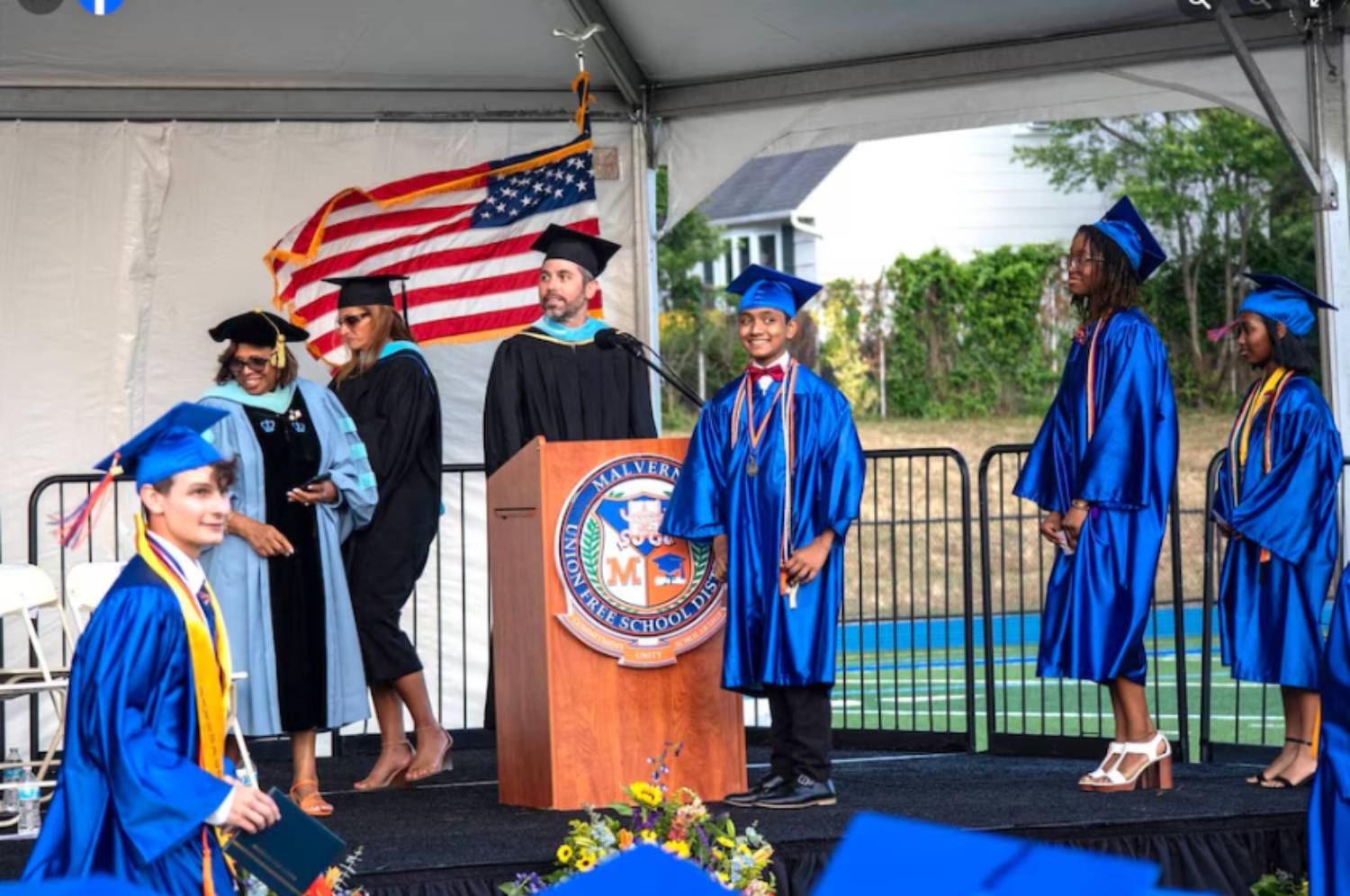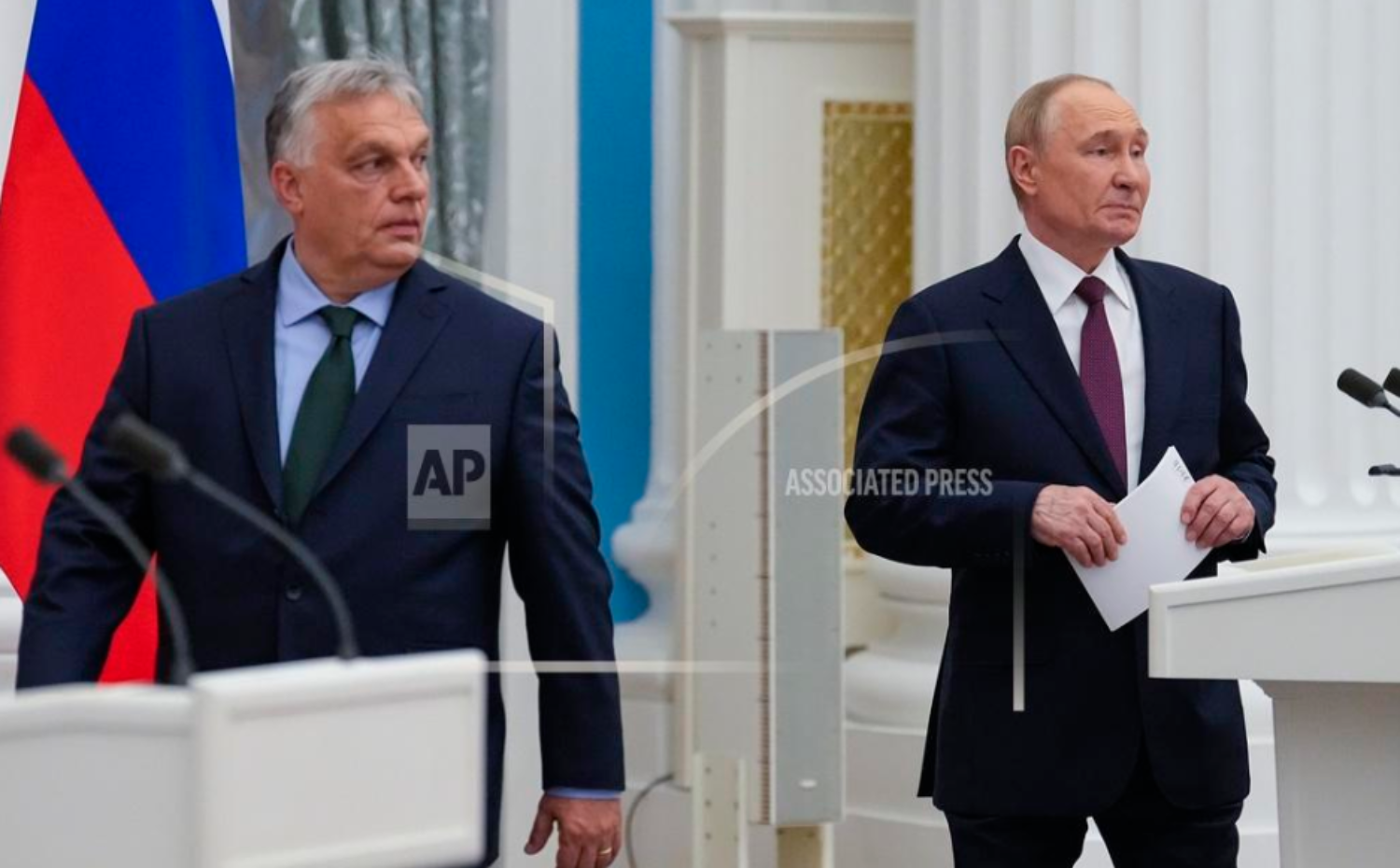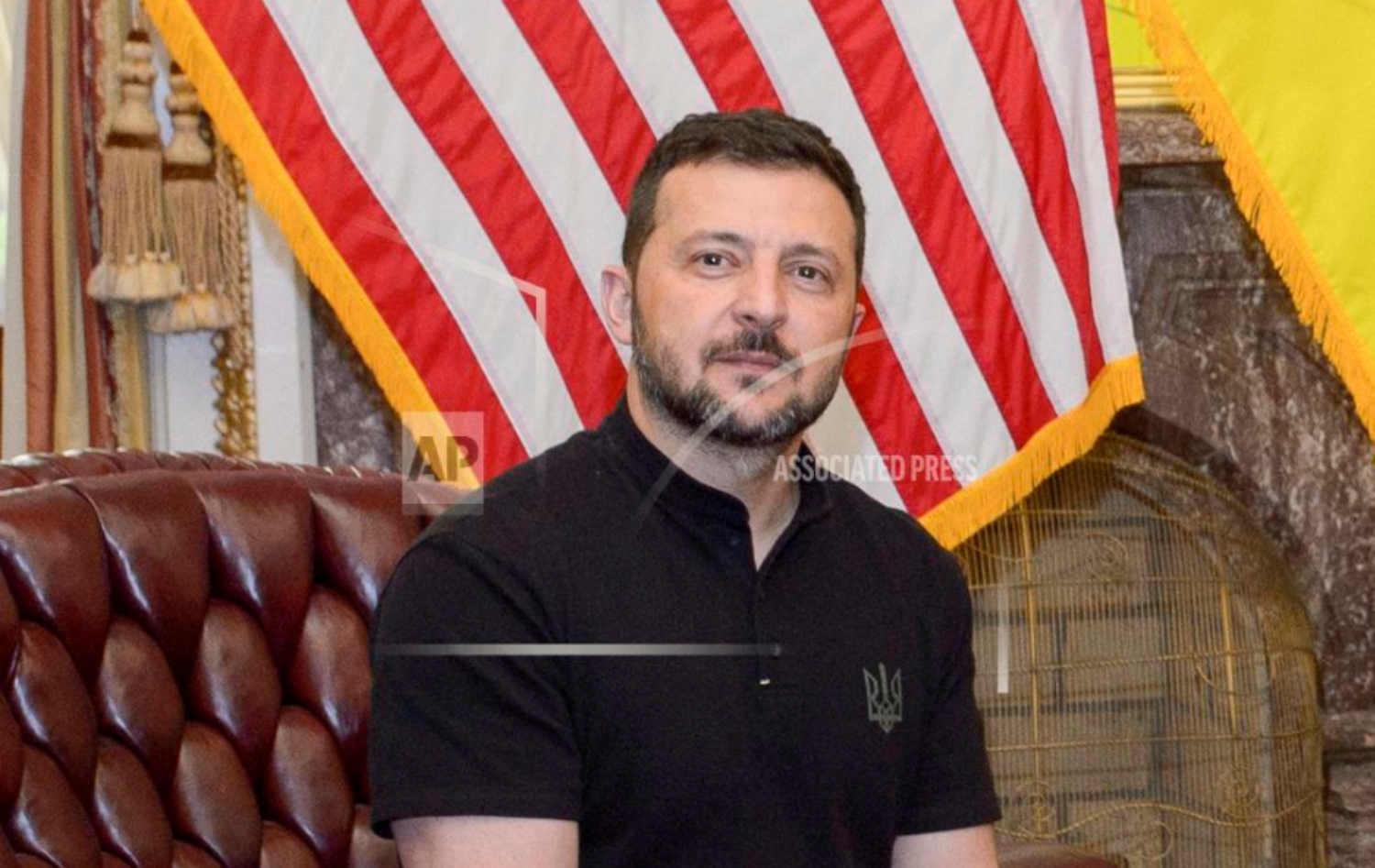-
Posts
10,078 -
Joined
-
Last visited
Content Type
Events
Forums
Downloads
Quizzes
Gallery
Blogs
Everything posted by Social Media
-
In the aftermath of the recent assassination attempt on Donald Trump, some left-wing social media users have come under fire for their tasteless and celebratory reactions. The shocking attack, which occurred at the Butler Farm Show grounds, narrowly missed Trump but resulted in the death of one attendee and critical injuries to two others. Among the numerous reactions online, a disturbing number of posts expressed disappointment that the shooter missed and lamented that the day fell short of being "the best day ever." A TikTok user, identified as @cele2t3, posted a video shortly after the attack, expressing disbelief and frustration that the shooter missed. “You’re telling me somebody finally had the balls to bring a ‘pew-pew,’ and they missed?” the user exclaimed, adding, “We were a second away, we were a centimeter away from half of the problem being gone and you missed!” The poster, who appeared to be driving while recording, further speculated about the identity of the shooter, implying racial motivations behind the failure. Kyle Rittenhouse, known for his controversial involvement in the 2020 Kenosha shooting, responded to the video, suggesting that the FBI should investigate the person behind the post. This call for investigation was echoed by many who found the reaction deeply inappropriate and alarming. Libs of TikTok, a popular conservative social media account, shared a compilation of other TikTok users who were celebrating or joking about the shooting. One video showed a person holding a candle and sarcastically attempting to summon the spirit of John Wilkes Booth, who assassinated President Abraham Lincoln in 1865. The person mockingly called upon Booth, before trailing off and laughing. Another video criticized the shooter’s accuracy, lamenting, “We’re not even sending our best to f–ing assassinate,” and comparing the shooter unfavorably to notorious assassins Lee Harvey Oswald and John Wilkes Booth. One TikTok user with the handle @yourfavorites7880 expressed disbelief, asking, “How the f–k did you shoot and miss?” and criticizing the shooter for not practicing beforehand. In a particularly morbid display, one TikTok user shared a selfie video, sitting on a couch with news playing in the background, stating, “Today was, like, this close to being the best day ever.” Some reactions extended beyond social media, with individuals taking to the streets to express their sentiments. Near Butler Memorial Hospital, where Trump was examined after the incident, a woman held a makeshift cardboard sign that read, “Wishing Trump a long terrible recovery!” The assassination attempt also provided fodder for some to poke fun at President Joe Biden, who has faced increasing scrutiny over his mental fitness. One post on X (formerly Twitter) shared a photo of Biden with his mouth agape, captioned, "Someone shot my vice president???” This was a jab at a recent gaffe where Biden mistakenly referred to Vice President Kamala Harris as "Vice President Trump." President Biden condemned the attack, stating unequivocally that there is no place for such violence in America. Despite the gravity of the situation, some on social media continued to use the incident to further their political agendas, demonstrating a troubling disregard for the seriousness of political violence and its potential consequences. The incident has sparked a broader discussion about the role of social media in amplifying extreme and harmful rhetoric. As platforms continue to grapple with content moderation, the reactions to the Trump shooting highlight the challenges in balancing free speech with the need to prevent incitement and celebrate violence. The backlash against those who celebrated the attack underscores a societal consensus that such reactions are not only inappropriate but dangerous, contributing to an already volatile political climate. Credit: NYP 2024-07-15 Get our Daily Newsletter - Click HERE to subscribe
-
Five years ago, Kalih Raksasewu was getting his car tuned when his mechanic shared a curious tidbit: he had stumbled upon a tiger near his home. The startled creature had jumped a fence and vanished, the man said. Strange encounter, thought Raksasewu, not least because the men live on Indonesia’s most populous island, Java, and especially because Javan tigers have long been believed extinct. The last confirmed sighting dates back nearly half a century, to 1976. Raksasewu took out his phone and showed the mechanic images of leopards, which can sometimes be confused for tigers. "No sir," came the reply. "The cat had stripes." Raksasewu found himself getting excited. A researcher involved in local conservation work, he had grown up hearing tales of the giant felines, including from his mother, who once saw one while driving. “In my heart, I’ve always been greatly interested in this creature, and I was very sad when it was declared extinct,” he said. He raced off with the mechanic, the auto-shop boss, and a few hangers-on to search for traces of the big cat. They tramped through the area of the alleged sighting, near plantations and fragmented forest landscapes where wild pigs and other potential tiger prey abound. Then they saw it: a single strand of hair that lay on the low wooden fence the animal had allegedly jumped. “I had this hope that the tiger had a hair snagged when he leapt,” said Raksasewu. “It turned out to be true.” In the beginning, guesses as to the provenance of the hair were wildly varied: a local plant or a cat of the regular, purring kind rather than the mighty, roaring kind—both of which, while anticlimactic, seemed more plausible. Years went by as the lone strand made an improbable journey through myriad government offices and laboratories, peered at by a parade of locals, bureaucrats, and scientists. Two weeks ago, DNA analysis suggested a match: Javan tiger. In an article in Oryx, a peer-reviewed journal published by Cambridge University Press, researchers said they compared DNA from the lone hair with that of its nearest living relative, Sumatran tigers—close but no cigar. Same for the DNA of a Javan leopard. The best match: the DNA of a Javan tiger from the 1930s preserved at an Indonesian museum. “In Indonesia, if you talk about the king of the jungle, you’re talking about the tiger,” said Wirdateti, a government researcher trained in genetic analysis who co-authored the paper with Raksasewu and two others. If the results are confirmed by further testing, it would be one of the most dramatic examples of what some in the conservation community refer to as “Lazarus” creatures—animals declared extinct that somehow survived. While the study has caused buzz, it is also attracting a good deal of skepticism. Anubhab Khan, a postdoctoral researcher at the University of Copenhagen who is an expert on the tiger genome, cast doubt. Khan said the genome of big cats is hugely complex, with distinctive features that affect what happens when big-cat DNA is sequenced for study. In this case, while the Indonesian researchers thought they were comparing what is known as mitochondrial DNA, they were in fact comparing a different type of DNA, Khan said. That muddied the analysis, he said. Khan said there may be a way to study the DNA further, but it would be challenging because there’s just one putative tiger hair to work with. As things now stand, Khan said, he’s fairly confident the hair comes from a big cat, but can’t go any further. “It’s just inconclusive.” He plans to publish his response in an academic journal. Indonesia’s environment ministry has said it plans to use camera traps and commission further genetic study. It cited the deepwater charr, which was believed to have perished from a large European lake decades ago but started turning up in fishing nets again in the 2010s. Tigers, however, are a different kettle of fish. “It is quite something,” Wulan Pusparini, an Indonesian ecologist pursuing a doctorate at Oxford University, said of the study. “I am quite skeptical about the possibility of a large cat hidden from public view for nearly five decades.” The giant predators were once so numerous in Java that entire villages would be evacuated after tiger attacks, which killed hundreds of people a year for much of the 19th century as coffee and sugar cane plantations expanded into the tigers’ forest home. Locals referred to bad years as “tiger plagues” and fortified their villages against attack. The British naturalist Alfred Wallace visited Java in the 1860s and recounted how a tiger dragged a boy from a cart. Some 700 villagers armed with spears systematically hunted down the cat, whose teeth were worn as charms. Today Java has long since lost its whiff of wildness. It is one of the most densely populated places on the planet, with more than 150 million people squished into an area slightly larger than Pennsylvania, leaving little room for tigers to roam undiscovered. Although residents claim to spot “tigers” occasionally, in many cases the cats turn out to be leopards. The Javan tiger was thought to be confined to folklore, used as a character in shadow puppet theater, and as an emblem for the armed forces. Wirdateti, who goes by one name, said she remained confident that the hair was from a Javan tiger and plans more research to buttress the team’s findings. She noted that other locals had also reported seeing what they said was a tiger. Ripi Yanur Fajar, the mechanic who claimed the initial sighting in 2019, said in an interview that he was confident of what he saw as he was riding his motorbike late at night. “The tiger was right there in front of me,” Fajar said. “It looked like they do in the zoo.” The discovery of a single hair has reignited hopes and dreams that the majestic Javan tiger may still roam the island. Yet, this revelation has also sparked a wave of scientific scrutiny and skepticism. As researchers continue to analyze and debate the findings, the world watches with bated breath, hoping that one of nature’s most magnificent creatures has defied the odds and survived the test of time. Credit: WSJ 2024-07-15 Get our Daily Newsletter - Click HERE to subscribe
-

Trump rushed off stage after possible assassination attempt
Social Media replied to DPat's topic in World News
https://x.com/sentdefender/status/1812293966659744074 -

Thailand is 'shocked' by Kyiv hospital attack
Social Media replied to webfact's topic in Thailand News
Off topic inflamatory troll post removed @NativeBob -
Nearly three years after the tragic death of cinematographer Halyna Hutchins on the set of the Western film "Rust" in New Mexico, the involuntary manslaughter case against its star, Alec Baldwin, has been dismissed. Judge Mary Marlowe Sommer ruled that the case could not be filed again, following a motion by Baldwin's defense team accusing the prosecution of concealing ammunition evidence. The courtroom saw an extraordinary day as the special prosecutor took the unusual step of calling herself as a witness. The dramatic turn of events culminated in Baldwin breaking down in tears and hugging his lawyers as Judge Marlowe Sommer dismissed the case, citing misconduct by police and prosecutors. Baldwin, 66, had consistently denied the charge of involuntary manslaughter over the fatal shooting, maintaining that he did not pull the gun's trigger and that others on set were responsible for the weapon's safety checks. If convicted, he could have faced up to 18 months in prison. The prosecution had argued that Baldwin behaved recklessly during a scene rehearsal on the set near Santa Fe, New Mexico, accusing him of playing "make believe with a real gun" and violating "the cardinal rules of firearm safety." However, Baldwin's defense team countered these claims, arguing that he was merely "an actor, acting" and had committed no crime. With the case now dismissed, Judge Marlowe Sommer has stated it cannot be filed again. Baldwin's wife, Hilaria, who had been supporting him in court alongside his actor brother Stephen, also cried as the judge delivered her ruling. Baldwin left the courthouse immediately, without speaking to reporters. Judge Marlowe Sommer explained, "The late discovery of this evidence during trial has impeded the effective use of evidence in such a way that it has impacted the fundamental fairness of the proceedings." The case's collapse began after the second day of evidence presentation, when Baldwin's defense team learned that the Santa Fe sheriff's office had taken possession of live rounds as potential evidence earlier this year, coinciding with the conviction of the film's armorer, Hannah Gutierrez, for involuntary manslaughter in connection with Hutchins' death. These live rounds were not listed in the Rust investigation file or disclosed to defense lawyers. Prosecutors argued that the ammunition was not connected to the case and was not hidden. In response, Baldwin's legal team filed a request to dismiss the case overnight. The court heard arguments on the motion from both parties without jurors present. Judge Marlowe Sommer decided she needed more evidence and testimony from additional witnesses to make a decision on the motion. She called the jury in only to dismiss them immediately afterward. The court heard testimony from witnesses, including prop store owner Seth Kenney, who supplied blanks and dummy rounds to the "Rust" set. Kenney denied providing live ammunition to the production and has not been charged in the case. Corporal Alexandria Hancock and Lieutenant Ryan Randall from the Santa Fe County Sheriff's Office also testified. Amid repeated suggestions from defense lawyer Alex Spiro that evidence had been concealed, special prosecutor Kari Morrissey took the witness stand in an unusual move, despite the judge indicating she was not required to do so. Morrissey denied that evidence had been hidden and maintained it was not relevant. However, Judge Marlowe Sommer found the conduct of the police and prosecutors "highly prejudicial" to Baldwin, stating, "There is no way for the court to right this wrong." During questioning, Spiro asked Morrissey if she simply did not "like Mr. Baldwin very much." Morrissey responded, "That is absolutely untrue. I actually really appreciate Mr. Baldwin's movies. I really appreciated the acting that he did on Saturday Night Live, and I really appreciate his politics." Spiro then claimed that Morrissey had referred to Baldwin as a "c*********" and an "arrogant p****" to witnesses, which Morrissey said she did not recall. Following the judge's ruling, Gutierrez's lawyer, Jason Bowles, commented that the judge had done "the right thing to preserve the integrity of our system." Gutierrez, who was sentenced to 18 months in prison, is currently appealing her conviction. Bowles indicated they would be filing a "similar motion" in her case. Credit: Sky News 2024-07-13 Get our Daily Newsletter - Click HERE to subscribe
-
Robert F. Kennedy Jr., has privately apologized to Eliza Cooney, a woman who has accused him of sexual assault. Despite stating that he does not recall the alleged incident, Kennedy expressed regret for any harm he might have caused, which he characterized as "inadvertent." This apology follows Cooney's detailed account of inappropriate behavior by Kennedy, which was published in Vanity Fair. Cooney's allegations include an incident in which Kennedy allegedly groped her in a pantry while she worked as his family's weekend nanny in the late 1990s. At the time of the alleged incident, Cooney was 23 years old, and Kennedy was 45, married, and the father of five children. "I have no memory of this incident but I apologize sincerely for anything I ever did that made you feel uncomfortable or anything I did or said that offended you or hurt your feelings," Kennedy wrote in a text message sent to Cooney at 12:33 a.m. on July 4, two days after her accusations became public. "I never intended you any harm. If I hurt you, it was inadvertent. I feel badly for doing so." Kennedy further expressed a desire to apologize in person, although he acknowledged that such a meeting might not be possible. "If you feel comfortable, Id [sic] like to tell you this by phone, and preferably, face to face. I recognize that this might not be possible. I have no agenda for sending this text other than making the most sincere and ernest [sic] amends." Despite Kennedy's apology, Cooney remains skeptical about his sincerity. In an interview with The Washington Post, Cooney, now 48, expressed disbelief that Kennedy claimed not to remember the incident and felt his efforts to contact her were more about damage control than genuine remorse. "It was disingenuous and arrogant," Cooney said of his message. "I’m not sure how somebody has a true apology for something that they don’t admit to recalling. I did not get a sense of remorse." Cooney was also disturbed by Kennedy’s suggestion that they meet in person, questioning, "Meet ‘face to face?’ What woman wants to do that?" Kennedy, son of former Attorney General Robert F. Kennedy and nephew of former President John F. Kennedy, is an independent candidate known for his conspiracist views and anti-vaccine activism. Despite his famous name, other prominent members of his family have disavowed his campaign, fearing it could divert crucial votes from President Biden in a close election. National polls indicate that about 9 percent of registered voters support Kennedy’s candidacy. After Cooney's story appeared in Vanity Fair, Kennedy made two phone calls to her on July 3 and sent her a text message asking her to call him. He followed up with his apology text shortly after midnight. Cooney, who had not been in contact with Kennedy for years, was unsure how he obtained her number and has not responded to his calls and messages. Kennedy declined to elaborate on his message to Cooney when contacted by The Washington Post, stating, "The text message speaks for itself." Cooney recounted several incidents of inappropriate behavior by Kennedy during her time working for his family. She described an episode where Kennedy ran his hand up and down her leg under a table, despite her efforts to bat his hand away. Another time, he appeared shirtless in her room with a bottle of body lotion, asking her to rub it into his back. The most egregious incident, according to Cooney, occurred in the pantry when Kennedy approached her from behind, placed his hands on her hips, and ran his hands up her body. This incident was interrupted by a man working on renovations in the house who made his presence known to Kennedy. Despite these experiences, Cooney continued to work for Kennedy for several months and remained at the environmental litigation clinic he led at Pace Law School for a few years. She ultimately decided against pursuing a career in environmental law, partly due to her negative experiences with Kennedy. Cooney shared her story with her mother for the first time amid the #MeToo movement, and her mother described it as "horrifying to hear about, especially with your own child." Elizabeth Geddes, a former federal prosecutor consulted by Cooney, stated that the unwanted touching Cooney described constituted sexual assault but that the criminal statute of limitations had passed. Cooney was eligible to bring a civil complaint under New York state’s Adult Survivors Act but chose not to due to concerns about the costs and duration of a lawsuit and potential blowback. Geddes criticized Kennedy’s direct approach to contacting Cooney, stating, "This is something that perhaps might make an offender feel better about doing it. But it’s hard to imagine that an apology such as this could provide any closure or other solace to somebody who was sexually assaulted in the workplace." Credit: Washington Post 2024-07-13 Get our Daily Newsletter - Click HERE to subscribe
-
Russia is suspected to be behind an assassination plot targeting Armin Papperger, the head of Europe's largest arms manufacturer, Rheinmetall. This plot is seen as part of Russia's broader campaign of sabotage and hybrid attacks against European NATO states, according to NATO diplomats. The alleged conspiracy was first reported by CNN, which cited US intelligence uncovering the effort and alerting German authorities, enabling them to foil the plot. Rheinmetall, based in Düsseldorf, Germany, has significantly increased its production capacity in response to Russia's invasion of Ukraine, manufacturing artillery shells, infantry fighting vehicles, military drones, and the Leopard 2 tank's main gun. Papperger drew ire from the Kremlin in 2023 when he announced plans to build a Panther tank factory in Ukraine. A spokesperson for Russian President Vladimir Putin, Dmitry Peskov, did not immediately respond to requests for comment on these allegations. Papperger's security has been heightened to a level similar to that of German Chancellor Olaf Scholz. While Papperger could not confirm the plot's details, he expressed confidence in the validity of the CNN report, indicating serious threats against his life due to his company's support for Ukraine. Western intelligence services have increasingly warned of Russia's sabotage attempts in Europe, including plots targeting military bases in Germany. Despite the gravity of these warnings, the German government has been keen to downplay the developments at the NATO summit in Washington. NATO Secretary-General Jens Stoltenberg refrained from commenting on the specific assassination report but acknowledged a pattern of Russian-organized hostile actions against NATO allies aimed at intimidating them from supporting Ukraine. Rheinmetall's production is set to expand further, with plans to produce 700,000 rounds of artillery next year, compared to 70,000 in 2022. The company will soon start producing 155mm shells in western Ukraine and will establish new production sites in Germany for ammunition and components for the F-35 fighter jet. Despite the threats, Papperger maintains a sense of safety and contentment, focusing on the critical role Rheinmetall plays in supporting Ukraine's defense efforts. The US National Security Council has taken the Russian subversion campaign seriously, working closely with NATO allies to expose and disrupt these activities. They emphasized that Russia's actions will not deter the allies from continuing to support Ukraine. This ongoing support highlights the importance of maintaining security and solidarity among NATO members in the face of increasing Russian aggression. Credit: Financial Times 2024-07-13 Get our Daily Newsletter - Click HERE to subscribe
-
A year after the tragic Titan submersible implosion, which claimed the lives of five individuals on a journey to the Titanic, OceanGate co-founder Guillermo Söhnlein is embarking on a new venture. Söhnlein’s company, Blue Marble Exploration, is organizing an ambitious expedition to explore Dean’s Blue Hole, one of the world’s deepest underwater sinkholes, located in the Bahamas. Known for its mysterious and foreboding reputation, the sinkhole has been described locally as the “portal to hell.” Dean’s Blue Hole plunges to a depth of 663 feet, presenting a challenging and potentially perilous environment for explorers. The sinkhole has previously been explored virtually, but Söhnlein’s team aims to undertake the first manned submersible dive to the site. The expedition promises to be a journey into the unknown, with participants encouraged to “expect the unexpected.” Guillermo Söhnlein, 58, co-founded OceanGate in 2009 with Stockton Rush, who tragically died in the Titan submersible disaster at the age of 61. After departing from OceanGate in 2013, Söhnlein co-founded Blue Marble Exploration, which has now set its sights on Dean’s Blue Hole. The sinkhole is steeped in local superstitions, with tales of it being a gateway to hell where the devil himself resides in the dark depths. The company’s website had previously noted that several people drown in Dean’s each year due to various misfortunes, and it is anticipated that human remains may be encountered during the dive. Dean’s Blue Hole is notorious for its dangers, having reportedly claimed as many as 200 lives in recent years. The challenges for the upcoming expedition are formidable, including uncharted waters, unpredictable currents, extreme pressure, near-complete darkness, and the sinkhole’s remote location. Blue Marble initially invited interested parties to join the expedition, but Söhnlein has since clarified that the dive will be conducted by trained professionals rather than tourists, as was the case with the ill-fated OceanGate trip. “The next frontier for our team is in the underwater depths of Dean’s Blue Hole,” the company’s advertisement for the mission read. “In the first descent of crewed submersibles, equipped with LED lights and underwater drone technology, our scientists will be able to venture into some of Earth’s least hospitable conditions in search of unprecedented findings.” Söhnlein has assured that certified submersibles will be used for the mission, emphasizing that this was always the plan, even before the Titan tragedy. The Titan submersible, which used a controversial carbon fiber hull, is believed to have experienced material weakening over time, leading to the catastrophic implosion during its dive to the Titanic wreck, situated approximately 12,500 feet below the North Atlantic Ocean. Reflecting on the Titan disaster, Söhnlein remains committed to the cause of deep-sea exploration. “Let’s figure out what went wrong, let’s learn lessons and let’s get down there again,” he told Reuters. “If anything, what we’re feeling is an even stronger imperative to continue doing this kind of exploration work. I think it’s important for humanity, and it’s probably the best way to honor the five crew members who gave up their lives doing something that they loved.” Söhnlein, who also harbors ambitions of safely sending humans to Venus, is undeterred by past tragedies. His focus now is on the upcoming dive into Dean’s Blue Hole, a venture that combines the allure of the unknown with the promise of scientific discovery. As Blue Marble Exploration prepares for this daring descent, the world watches with a mix of anticipation and caution, mindful of the risks but hopeful for the rewards of such audacious exploration. Credit: NZ Herald 2024-07-13 Get our Daily Newsletter - Click HERE to subscribe
-
Donald Trump has received discouraging news from Black voters as support for Joe Biden among this demographic has surged in seven key battleground states. According to a new survey conducted for BlackPAC, the proportion of Black voters who would vote for Biden over Trump has increased by 15 points between February and June. Specifically, backing for Biden rose from 50 percent to 65 percent, while support for Trump declined from eight percent to seven percent. The survey also noted a decrease in the proportion of Black voters supporting third-party candidates Jill Stein, Robert F. Kennedy Jr., and Cornel West, which fell from 17 percent to 11 percent. Additionally, the number of undecided voters dropped from 25 percent to 18 percent. This shift comes amid calls from within Biden's own party for him to step down from the race, particularly following the first presidential debate on June 27. During the debate, the Democratic incumbent appeared to lose his train of thought several times. More recently, at the NATO summit in Washington D.C., Biden mistakenly referred to Ukrainian President Volodymyr Zelensky as "President Putin" and called Vice-President Kamala Harris "Vice-President Trump." The survey by Brilliant Corners Research & Strategies polled 800 likely Black voters in Georgia, Michigan, North Carolina, Nevada, Ohio, Pennsylvania, and Wisconsin between June 23 and June 29. The poll has a margin of error of 3.46 percent. Brilliant Corners has previously served as the chief pollster for the Democratic National Committee, while BlackPAC aims to "galvanize Black voters to the polls." The survey also found that Biden's net approval rating among Black voters in these key swing states increased from 44 points in February to 54 points in June. During this period, 74 percent of Black voters approved of his performance, while only 20 percent disapproved. Of those who watched the June 27 presidential debate, 70 percent said it made them more likely to vote for Biden, while just 20 percent said it made them less likely to do so. Another 10 percent either didn't know or declined to answer the question. Among Black voters in the swing states who didn't watch the debate, only 43 percent became more likely to back Biden, while 55 percent became less likely, with another two percent unsure. Representatives of the 2024 Joe Biden and Donald Trump presidential campaigns were contacted for comment by Newsweek but did not respond immediately. Meanwhile, a Siena College poll conducted between June 28 and July 2 for The New York Times found that 47 percent of Black voters think Biden shouldn't be the 2024 Democratic Party nominee, while 43 percent believe he should stay in the race. Among U.S. voters as a whole, a CBS News/YouGov poll conducted over the same period found that 69 percent don't think Biden should run, including 41 percent of Democrats. Among Black voters, the survey found that 58 percent think Biden should remain the Democratic candidate, while 42 percent want him replaced. Credit: Newsweek 2024-07-13 Get our Daily Newsletter - Click HERE to subscribe
-
Former President Donald Trump has formally requested the dismissal of his criminal conviction, leveraging the Supreme Court’s recent decision on presidential immunity. In a 52-page brief made public on Thursday, Trump's legal team argues that the Manhattan District Attorney's Office (DANY) improperly introduced evidence protected by presidential immunity, treating Trump “unfairly and unlawfully.” The brief, submitted by Trump attorneys Todd Blanche and Emil Bove, urges New York Judge Juan Merchan, who presided over the trial, to overturn the guilty verdict and dismiss last year’s indictment. The attorneys assert, “The record is clear: DANY was wrong, very wrong,” and call on the court to rectify these purported injustices in light of the Supreme Court’s ruling. In late May, a New York jury found Trump guilty on all 34 counts of falsifying business records, with the intent to unlawfully influence the 2016 election. The charges stem from Trump’s reimbursement of his then-fixer, Michael Cohen, for a $130,000 payment to porn star Stormy Daniels to keep quiet about an alleged affair. Trump has consistently denied any affair. The recent Supreme Court decision, which establishes presumptive criminal immunity for presidents’ official acts, offers Trump a new avenue to challenge his verdict. While Trump did not previously claim immunity from the hush money charges themselves, the ruling prevents prosecutors from using protected acts as evidence, even if the charges relate to unofficial conduct. Trump’s lawyers argue that prosecutors improperly introduced evidence of official acts during his trial and the grand jury proceedings that led to his indictment. This evidence includes one of Trump’s government ethics forms, social media posts made while in office, and testimony from two White House aides. The attorneys maintain that much of this evidence involved “core” executive functions, which the Supreme Court has deemed absolutely protected. “To vindicate the Presidential immunity doctrine, and protect the interests implicated by its underpinnings, the jury’s verdicts must be vacated and the Indictment dismissed,” Trump’s legal team stated in the brief. The brief was filed on Wednesday, coinciding with Trump’s originally scheduled sentencing date. Judge Merchan postponed the sentencing until September 18 to consider the immunity argument. Manhattan District Attorney Alvin Bragg’s office, which agreed to the delay, has indicated it believes the conviction should remain intact. Bragg’s office is expected to respond in court filings later this month. Credit: Hill 2024-07-13 Get our Daily Newsletter - Click HERE to subscribe
-

Lawsuit Filed Over Teen's Death After Spicy Chip Challenge
Social Media posted a topic in World News
In a tragic and controversial case, a lawsuit was filed on Thursday against Hershey, Walgreens, and other parties in connection with the death of a Massachusetts teenager, Harris Wolobah. The 10th grader from Worcester died on September 1, 2023, after participating in the "One Chip Challenge," a social media-promoted stunt involving the consumption of an extremely spicy tortilla chip. The challenge, created by Paqui, a Texas-based subsidiary of Hershey Co., involved eating a single chip made with chile pepper extract and documenting the reaction online. An autopsy revealed that Harris died of cardiopulmonary arrest after ingesting the high-capsaicin chip. Capsaicin is the active component in chile peppers responsible for their heat. Additionally, Harris had a congenital heart defect, including cardiomegaly (an enlarged heart) and myocardial bridging of the left anterior descending coronary artery. Douglas Sheff, one of the attorneys representing the Wolobah family, announced the wrongful death lawsuit in Suffolk Superior Court, seeking a judgment that includes punitive damages. Sheff emphasized that Paqui’s production and marketing of the spicy chip, combined with Walgreens’ sale of it to minors, created a "perfect storm" leading to Harris's death. "The defendants charged about $10 for each chip, $10 for the chip that killed Harris, $10 for his life," Sheff stated. He questioned the defendants' awareness of the chip's dangers and criticized the marketing campaign aimed at children. Harris's parents, Lois and Amos Wolobah, attended the news conference but did not speak. They were visibly emotional, with Lois blowing a kiss to a photo of Harris. Despite the autopsy noting Harris’s heart condition, Sheff insisted, "The chip is what killed him." Paqui expressed sorrow over Harris's death but pointed to the chip’s clear labeling, which warned that it was not suitable for children, those sensitive to spicy foods, or individuals with underlying health conditions. The chip, sold individually for about $10, came in a coffin-shaped box with warnings of "intense heat and pain," and was intended for adult consumption only. After reports of adverse reactions, Paqui worked with retailers to remove the product from shelves in September 2023, and the One Chip Challenge has since been discontinued. Despite the warnings, children easily purchased the chips, leading to several incidents across the country where teens fell ill after participating in the challenge. In 2022, three California high school students were hospitalized, and seven Minnesota students received medical treatment after consuming the chip. The challenge involved eating the chip and enduring the intense heat without consuming other food or water, with many participants posting their reactions on social media. Videos showed people, including children, gagging, coughing, and begging for water, with numerous instances of sickness documented. Harris Wolobah’s death prompted warnings from Massachusetts authorities and medical professionals, who cautioned that consuming extremely spicy foods could have serious health consequences, including allergic reactions, breathing difficulties, irregular heartbeats, and even heart attacks or strokes. Poison control centers echoed these concerns, highlighting the risks of high-capsaicin foods. Sheff emphasized that the lawsuit aims to bring justice to the Wolobah family and serve as a warning against endangering children. "This is a case about protecting our children," he said, stressing the importance of accountability for those who put young lives at risk through reckless marketing and sales practices. Credit: ABC News 2024-07-13 Get our Daily Newsletter - Click HERE to subscribe -
Employees involved in constructing aircraft fuselages for Boeing's largest supplier, Spirit AeroSystems, have expressed fears about flying on the very planes they helped build, according to Santiago Paredes, a former quality inspector at the firm. Paredes, who worked at Spirit AeroSystems in Wichita, Kansas, revealed in an exclusive interview with Newsweek that he consistently reported quality-control issues despite significant pushback from his superiors, who he said wanted to keep the problems hidden. "The managers didn't want defects logged because it spotlighted the issues they were trying to cover up," Paredes said. Having spent over a decade as an inspector and team leader, Paredes left Spirit in 2022 after repeatedly warning superiors about quality control failures. He faced demotion and relocation within the company after raising concerns, he said. Despite the pushback, Paredes, 50, continued to document every flaw, taking pictures and sharing them in a private group chat. This practice earned him the nickname "Showstopper" among his colleagues. "We often bypassed managers who would otherwise yell at us about the defects. By the time they complained, the defects were already logged in the system, holding them accountable," Paredes said. Spirit AeroSystems, spun out of Boeing two decades ago as part of a cost-cutting strategy, builds large sections of several Boeing models, including the main body of the 737 MAX jets assembled in Renton. Federal investigators contend that mistakes made in Renton during final assembly led to the midair blowout that left a hole in the side of Alaska Flight 1282 as it lifted off from Portland in January, a near catastrophe that added to the scrutiny for the aerospace giant. "The incident didn't surprise me because of the way they did business. I was relieved no lives were lost but wasn't surprised an accident occurred," Paredes said. Investigators revealed that the door had originally been fitted by Spirit but was subsequently removed by Boeing technicians to rectify faulty riveting. By the time that incident occurred, Paredes, a quality manager originally from Ecuador, was already involved in a lawsuit against Spirit at the behest of another whistleblower and one of his closest friends, Joshua Dean. Dean, a former auditor who later became a whistleblower against Boeing, died at the age of 45 after battling a sudden illness in May. "He was a good friend of mine. He asked if I had any of the documentation from the ethics reports I filed, and I said I did. I agreed to be part of the lawsuit because I thought it was time to do something to prevent any further incidents," Paredes said. Newsweek reached out to both Spirit and Boeing for comment. The lawsuit, filed by a group of Spirit's shareholders, accuses the company of widespread quality failures and alleges that the company attempted to cover up serious defects in parts supplied to Boeing, thus exposing shareholders to financial losses when these defects became known. "I always voiced my concerns, but they never listened. They were focused on saving money, being a supplier for Boeing, and meeting the demand for cheaper fuselages," Paredes said. He said he often found up to 200 defects on parts being prepared for shipment to Boeing. According to the whistleblower, the escalation of production rates, especially when the 737 Next Generation peaked at 50 units per month, exacerbated these problems. New hires with inadequate training working at an increased pace led to more overlooked issues, contributing to the mistakes. "Many employees are afraid to fly on planes they helped build because they knew how they were constructed and the defects they had. This fear reflects a problematic culture within Spirit and Boeing," he said. Paredes was still part of Spirit when the 737 MAX crashes of 2018 and 2019 happened. He noted that the internal response to those crashes, which together claimed 346 lives, was one of denial and damage control. "The managers tried to keep everyone calm, assuring us there wouldn't be layoffs, and indeed, we didn't have layoffs until COVID-19," Paredes recounted. He expressed frustration at the lack of genuine change in response to these disasters, as the company continued to prioritize production demands over safety. "Even though the 737 MAX was grounded, they maintained the rate. They were still building at a high pace," he said. In recent years, quality-control problems at Spirit AeroSystems had become a significant issue, including fuselage panels that didn't fit properly and improperly drilled holes. Just days after pleading guilty to defrauding FAA officials over the MCAS flight control software linked to the 737 MAX crashes, Boeing announced a $4.7 billion plan to buy back Spirit. Aviation experts argued that this buyback was an implicit acknowledgment that Boeing's long-standing strategy of outsourcing key work on passenger planes has been at least partially responsible for the company's current troubles, including the notable Alaska Airlines incident. Spirit has made changes prior to the buyback. The company fired its CEO last year after a series of expensive and embarrassing quality lapses and brought in Patrick Shanahan, a former Boeing executive, whose name is among the favorites to take Dave Calhoun's seat as CEO of the aerospace giant. Paredes remains skeptical about the changes, believing that things are not going to change within the company even if it will soon be officially back under Boeing's umbrella. He pointed to a culture where mistakes were "normalized." It got to the point, Paredes said, that a manager ordered him in writing to essentially undercount the number of mistakes to keep Boeing happy. "Many of those managers are still there. And until they're gone, the culture at Spirit will never change," he said. Credit: Newsweek 2024-07-13 Get our Daily Newsletter - Click HERE to subscribe
-
European officials are expressing deep concerns over reports that Donald Trump is considering plans to reduce the sharing of U.S. intelligence with NATO allies if he returns to the presidency. This potential policy change could have profound security implications for Europe, which relies heavily on U.S. intelligence to counter Russian aggression. Trump's advisers have communicated to allied countries that this reduction in intelligence sharing would be part of a broader strategy to scale back U.S. support and cooperation with the 32-nation alliance. These discussions have caused significant unease among European officials, who remember Trump's often critical stance toward NATO during his first term in office. During his initial tenure, Trump frequently questioned the value of NATO and sought to undermine the alliance, which has historically been a cornerstone of transatlantic security. The potential curtailment of intelligence sharing now threatens to severely impact Europe's ability to defend against Russian actions, particularly as Ukraine continues to resist the Russian invasion. The issue of reduced intelligence sharing was a prominent topic at the recent NATO summit, where officials expressed their worries about the potential consequences. A senior U.S. official, speaking on condition of anonymity, noted that President Joe Biden had significantly expanded U.S. intelligence sharing, especially regarding Russia, to support NATO allies and counter Russian influence and military operations globally. Jens Stoltenberg, NATO's Secretary-General, underscored the importance of U.S. intelligence sharing in uncovering and thwarting Russian destabilizing activities, including sabotage and assassination plots in Europe. He remarked, "What I can say is there is a pattern, a Russian campaign organized by the [Kremlin] security services to conduct hostile actions against NATO allies with different types of hostile actions." The Biden administration's approach has been to enhance intelligence collection on Russia and share it widely with allies, a strategy that has been crucial in countering Russian military aggression and other hostile actions. John Brennan, former CIA Director, emphasized the critical nature of this cooperation, stating, "Intelligence sharing among NATO members and with Ukraine has been absolutely essential to counter Russia’s military aggression against Ukraine as well as to uncover and thwart other destabilizing Russian activities in Europe and beyond." The Biden administration's increased intelligence sharing has provided NATO partners with vital information about Russian movements, military maneuvers, and partnerships with countries like Iran and North Korea. This intelligence has been essential for helping NATO countries prepare and respond to potential threats, reinforcing the alliance's collective security. European officials have warned that reducing U.S. intelligence sharing could make Europe more vulnerable to Russian aggression and sabotage. One European official highlighted the critical role of U.S. intelligence, saying, "It’s the American intelligence that helped convince a lot of NATO countries that Putin was resolved to invade Ukraine. Some countries didn’t believe Russia had the capabilities to carry out a successful military campaign." The potential policy shift underscores the delicate balance of intelligence cooperation within NATO and the significant role the U.S. plays in maintaining European security against Russian threats. The Biden administration's increased intelligence sharing has been part of a broader strategy to counter Russian influence and military might in regions traditionally dominated by the U.S., including Africa. CIA Director Bill Burns highlighted the importance of this intelligence in a speech at Georgia Tech in 2022, noting that it had provided valuable lessons on "how to develop good intelligence and deploy it openly and creatively to discredit the false narratives on which adversaries so often thrive." Despite the crucial role of U.S. intelligence, there is concern that European countries might retaliate by reducing their own intelligence sharing with the U.S. if Trump were to hold back information. A recently retired senior U.S. official explained, "Almost as harmful as ceasing cooperation with our European allies is the fact that they’re likely to hold back intelligence from us given Trump’s pretty fast and loose handling of classified information. There are things our allies know that we don’t that we count on when it comes to certain sources." This potential reduction in intelligence sharing could not only weaken NATO's collective defense but also hinder the ability of individual European countries to respond to Russian threats. A senior NATO official emphasized the gravity of the situation, stating, "Russia right now, they’re committing actual acts of arson and sabotage and planning assassinations on allied soil all in an effort to undermine support for Ukraine amongst our domestic populations. The U.S. has increased intelligence sharing within NATO in order to help support the response to these sabotage campaigns. And that’s having a real impact." The possibility of a Trump administration scaling back U.S. intelligence sharing with NATO allies has sparked a significant debate within the alliance. European officials are urging the U.S. to maintain its current level of cooperation to ensure the security and stability of the region. As one European official put it, "Intel sharing is often two-way traffic." The potential cutback not only jeopardizes European security but also risks alienating key allies who have been instrumental in supporting the U.S. in various global security initiatives. As the geopolitical landscape continues to evolve, the importance of robust intelligence sharing among NATO allies cannot be overstated. The Biden administration's efforts to enhance this cooperation have provided critical support to Ukraine and bolstered the alliance's ability to counter Russian aggression. Any move to reduce this intelligence sharing could have far-reaching consequences for the security and stability of Europe and the broader international community. Credit: Politico 2024-07-13 Get our Daily Newsletter - Click HERE to subscribe
-
In a much-anticipated solo news conference, President Joe Biden faced the White House press corps in an effort to reassure Democratic lawmakers, allies, and voters of his capability and resolve to remain in office. This event, designed to mitigate concerns following his less-than-stellar performance in the June 27 debate against Republican Donald Trump, saw Biden making detailed responses about his work and plans while also committing notable gaffes. During the conference, Biden made two significant verbal missteps. He referred to Ukrainian President Volodymyr Zelenskyy as “President Putin” and mistakenly called Vice President Kamala Harris “Vice President Trump.” Despite these errors, Biden remained defiant, particularly when questioned about his reference to "Vice President Trump." He retorted, “Listen to him,” and walked off the stage, undeterred by the criticism. Biden's determination to remain in the race was clear. “I’ve got to finish this job,” he repeatedly emphasized, underscoring his commitment despite growing calls from Democratic lawmakers for him to step aside. When asked if he would consider stepping down for Harris if polls indicated she had a better chance of defeating Trump, Biden responded with a firm “No,” adding in a stage whisper, “No poll’s saying that.” The president attempted to pivot the focus from his verbal slip-ups to his substantive achievements and plans. He highlighted the just-concluded NATO summit, praising it as a significant boost to America’s standing on the global stage. “Have you ever seen a more successful conference?” he asked reporters, emphasizing his efforts to maintain and strengthen NATO. He also pointed to the easing of inflation from its 2022 peak and the creation of 800,000 manufacturing jobs as evidence of his administration’s success. Biden’s responses during the press conference reflected his focus on foreign policy, a topic he is well-versed in and passionate about. He discussed his role in shepherding Finland into NATO and addressed the importance of pushing back against China for its support of Russia during the Ukraine conflict. His detailed recounting of these events aimed to demonstrate his continued capability to handle complex international issues. However, the overarching purpose of the news conference was to reassure Democrats and the public that Biden remains fit for the presidency and capable of defeating Trump in the upcoming election. The focus on his strengths in foreign policy was an attempt to overshadow the ongoing concerns about his age and verbal slip-ups. Throughout the conference, Biden often reverted to familiar talking points and anecdotes. He criticized trickle-down economics, lauded Delaware for its corporate leadership, and emphasized his pro-union stance. These rehearsed lines served to ground his responses in familiar territory, allowing him to avoid further spontaneous errors. Despite the detailed answers and attempts to project strength, the event did not entirely dispel concerns about Biden’s performance and capabilities. The regular coughing, throat clearing, and occasional lowering of his voice to a hoarse whisper were reminders of the physical pressures he faces. Nevertheless, Biden’s insistence on staying in the race and his defiant attitude towards critics underscored his determination to lead and finish the job he started. Credit: ABC News 2024-07-12 Get our Daily Newsletter - Click HERE to subscribe
-
In a significant development for European defense, the United States and Germany have jointly announced the planned deployment of advanced long-range missiles in Germany by 2026. This move, aimed at bolstering NATO's capabilities, underscores America's commitment to the alliance and its strategic role in Europe. However, the announcement has sparked a stern reaction from Russia, with Deputy Foreign Minister Sergei Ryabkov promising a military response. The deployment will include sophisticated weaponry such as SM-6 missiles, Tomahawk cruise missiles, and developmental hypersonic weapons. The U.S. and German governments clarified that the deployment would be "episodic" initially, but plans for "enduring stationing" are being considered for the future. This initiative aligns with the broader strategic objectives of NATO, particularly in light of ongoing security challenges in the region. "Without nerves, without emotions, we will develop first of all, a military response to the new threat," Ryabkov stated to journalists, as reported by Russia's state-run TASS news agency. While he did not specify the nature of the military response, he emphasized that these measures would not force Russia to disarm or trigger an expensive arms race. Instead, Ryabkov indicated that Russia would adopt a calculated and measured approach to counter the perceived threat. The U.S.-German announcement coincided with NATO's 75th-anniversary summit in Washington. During the summit, the alliance's 32 members declared that Ukraine is on an "irreversible path" to membership, highlighting the alliance's support for the country amid its struggle against the full-scale invasion launched by Russia in 2022. However, NATO Secretary-General Jens Stoltenberg noted that Ukraine's membership would depend on agreement among allies and the implementation of necessary systemic reforms. The eastward expansion of NATO, particularly Ukraine's aspirations to join the alliance, has been a contentious issue for Russia. This expansion is often cited by Moscow as a justification for its ongoing military actions in Ukraine. Despite NATO's assertion that it does not seek confrontation and poses no threat to Russia, the declaration of Ukraine's future membership has escalated tensions. The alliance emphasized its willingness to maintain communication channels with Moscow to mitigate risks and prevent escalation. The announcement of Ukraine's future NATO membership prompted a strong reaction from Dmitry Medvedev, Deputy Chairman of Russia's Security Council and former President. Medvedev warned that Russia would take all necessary measures to prevent Ukraine's integration into NATO. In a social media post, he stated that Russia "must do everything to ensure that Ukraine's 'irreversible path' to NATO ends either with Ukraine's disappearance or with NATO's disappearance. Or better yet, both." Credit: CBS News 2024-07-12 Get our Daily Newsletter - Click HERE to subscribe
-
President Joe Biden is set to participate in an exclusive interview with NBC Nightly News anchor Lester Holt, which will be taped in Austin, Texas, and aired in its entirety on NBC's streaming service at 9 p.m. ET next Monday. Portions of the interview will also be broadcast on NBC Nightly News at 6:30 p.m. ET the same evening, with the network planning to post a full transcript online. This interview is particularly significant as it follows Biden's controversial performance at CNN’s presidential debate last month, an event that has caused considerable upheaval within the Democratic Party and led to calls for Biden to reconsider his candidacy. Biden's debate performance was widely criticized, prompting a crisis within his party and sparking discussions about his ability to continue as the Democratic nominee. In an effort to address these concerns, Biden recently sat down with ABC’s George Stephanopoulos for a 22-minute interview that drew over 8 million viewers. This upcoming interview with Holt will be Biden’s sixth sit-down with a news network in 2024, a notable statistic given that he has conducted fewer television interviews than any president since Ronald Reagan. This information comes from Professor Martha Joynt Kumar, a presidential scholar who tracks press interactions. The interview with Holt is highly anticipated as it provides Biden with a crucial platform to address the issues and controversies that have surrounded his campaign in recent weeks. NBC has not yet disclosed the expected duration of the interview, leaving the public curious about how comprehensive the conversation will be. Political analysts and the general public are eager to see how Biden will navigate this important media appearance and whether it will influence the ongoing discourse within the Democratic Party and the broader political landscape. Biden’s participation in this interview is seen as a critical opportunity for him to articulate his vision and respond to the challenges facing his campaign. The stakes are high, and the interview is expected to be a defining moment in his bid for re-election. With the political climate becoming increasingly volatile, the outcome of this interview could have significant implications for Biden's campaign and the future of the Democratic Party. As the date approaches, all eyes will be on Austin, Texas, to see how President Biden addresses the pressing issues and concerns that have been raised by both his supporters and critics. Credit: CNN 2024-07-12 Get our Daily Newsletter - Click HERE to subscribe
-
In a rare occurrence, Colorado health officials are investigating a suspected human case of the bubonic plague, a bacterial infection that infamously decimated Europe’s population in the 14th century. Despite its historical notoriety, the plague today is rare and treatable with antibiotics. According to the Centers for Disease Control and Prevention (CDC), the U.S. records about seven cases annually. Earlier this year, Oregon reported a case likely transmitted from a sick cat. The news might surprise those who consider the plague a relic of the past, but understanding its current presence and treatment is crucial. The bubonic plague is the most common form of the bacterial infection, primarily spread among rodents such as prairie dogs and rats. There are two other forms: septicemic plague, which affects the entire body, and pneumonic plague, which infects the lungs. Bubonic plague causes painful, swollen lymph nodes known as buboes, typically found in the groin, armpit, and neck. If untreated, it can progress into the septicemic or pneumonic forms. Other symptoms include sudden high fever and chills, headaches, and pain in the abdomen, legs, and arms, according to the Cleveland Clinic. The bacteria Yersinia pestis, which causes the plague, is usually transmitted through the bites of infected fleas. These fleas can jump between rodents, pets, and humans, spreading the disease. Humans can also contract the plague through contact with infected bodily fluids, making it crucial to exercise caution when handling sick or dead animals. The plague can also spread via respiratory droplets from a person with pneumonic plague, the most deadly form, which has a nearly 100% fatality rate if untreated. In the U.S., most plague cases occur in rural areas of northern New Mexico, northern Arizona, southern Colorado, California, southern Oregon, and far western Nevada. Globally, the World Health Organization (WHO) reports that the plague is most endemic in the Democratic Republic of the Congo, Madagascar, and Peru. While the plague was never eradicated, advancements in prevention and treatment have significantly reduced its threat. Early antibiotic treatment is crucial for curing the plague, underscoring the importance of seeking medical attention promptly. Preventative measures include keeping areas around the home free of debris to deter rodents and ensuring pets are up to date on flea treatments. The CDC also recommends using bug spray with DEET when spending time outdoors to repel fleas and other disease-carrying pests. Vaccines for the plague exist but are recommended by the WHO only for individuals at high risk, such as laboratory and healthcare workers. There is no plague vaccine available in the U.S. Lisa Morici, a microbiologist and immunologist at Tulane University School of Medicine, emphasizes the need for more research. While existing vaccines in other parts of the world are effective against bubonic plague, there is insufficient evidence to confirm their efficacy against pneumonic plague. Developing a vaccine trial is ethically and logistically challenging due to the rarity of the disease and its treatability with antibiotics. As Morici notes, "Because the bubonic form is quite treatable with antibiotics and also quite rare — you don’t see thousands and thousands of cases of plague a year — there’s just not a huge market for a plague vaccine at this point in time." The investigation in Colorado highlights the importance of vigilance and awareness in preventing and managing plague infections, even in modern times. Credit: NBC News 2024-07-12 Get our Daily Newsletter - Click HERE to subscribe
-
Majid Freeman, known as Majid Novsarka, a campaign supporter for the newly elected independent MP for Leicester South, Shockat Adam, has been charged with terrorism offenses. Freeman, 36, faces charges of encouraging terrorism and supporting a proscribed organization. After being charged, he was released on bail. Leicestershire Police have not specified the actions that led to these charges. Freeman played a significant role in Adam’s campaign, which heavily focused on the Gaza conflict. This campaign culminated in a major political upset, as Adam defeated Labour’s Jonathan Ashworth. Ashworth had served as Labour’s shadow paymaster general and was expected to secure a senior position in Sir Keir Starmer’s new government. Shockat Adam’s victory was part of a broader trend in the recent general election, where four independent candidates won seats by campaigning on the Gaza conflict in areas with large Muslim populations. Former Labour leader Jeremy Corbyn, who has been critical of Labour’s response to the Gaza conflict, also won his seat in Islington North as an independent after being expelled from the party. In Leicester South, Adam received 14,739 votes, narrowly defeating Ashworth, who secured 13,760 votes. This victory was particularly significant as the seat had previously been a stronghold for Labour. Ashworth has called on Adam to publicly explain his association with Freeman, stating, “Decent minded people across Leicester will expect their new MP to publicly and without equivocation provide a full account of all his dealings with this individual in the campaign.” A video posted on X (formerly Twitter) by Freeman and reshared by Adam on June 22 showed Freeman confronting Ashworth on the street about his abstention from a parliamentary vote on a Gaza ceasefire. Adam’s caption on the video accused Ashworth of being “ashamed” of Labour’s “pro-genocide position” and suggested that if Ashworth did not want to face public questioning, he should avoid canvassing on the streets. Sir Keir Starmer, now the Prime Minister, has faced criticism from some Labour supporters for his gradual shift towards supporting a Gaza ceasefire. This internal party conflict influenced several recent electoral contests, with other prominent Labour MPs narrowly avoiding defeat by independent or Workers party candidates. The context of religious and ethnic identity is particularly sensitive in Leicester, where violence erupted between young Muslim and Hindu men in August and September 2022. Freeman did not immediately respond to a direct message on X seeking his comments on the charges, and Adam also did not immediately respond to an email requesting comment on Ashworth’s demands. Majid Freeman is scheduled to appear at Westminster Magistrates’ Court on July 24. The situation highlights the complex interplay of local politics, international conflict, and community tensions in the UK, particularly in areas with diverse populations. As the legal proceedings unfold, the implications for both Shockat Adam and the broader political landscape remain to be seen. Credit: Financial Times 2024-07-12 Get our Daily Newsletter - Click HERE to subscribe
-
Vice President Kamala Harris is emerging as the leading contender to replace President Joe Biden at the top of the Democratic ticket, according to a recent poll. This development comes amidst growing pressure on Biden to reconsider his candidacy due to concerns about his performance, particularly after a heavily criticized debate with former President Donald Trump on June 27. Despite Biden's consistent assertions that he intends to stay in the race and the public support from key Democratic figures, speculation about his withdrawal continues to circulate. The Economist/YouGov poll, conducted from July 7 to July 9, indicates that a significant majority of Democratic voters favor Harris as Biden's potential replacement. The survey reveals that 73 percent of Democratic voters "somewhat" or "strongly" approve of Harris taking over the candidacy. This is a notable increase from a previous poll conducted from July 3 to July 6, which showed a 66 percent approval for Harris in the same role. Alternative candidates for the Democratic nomination, such as Transportation Secretary Pete Buttigieg, California Governor Gavin Newsom, Michigan Governor Gretchen Whitmer, and Pennsylvania Governor Josh Shapiro, trail behind Harris in popularity. Buttigieg, who was the second most favored choice, garnered 57 percent approval. Newsom and Whitmer received 50 percent and 45 percent approval, respectively. However, the poll also highlights a division within the Democratic Party regarding Biden's candidacy. While 55 percent of Democratic voters believe Biden has the best chance of defeating Trump in a November rematch, only 46 percent expressed the same confidence in Harris. Additionally, when asked if Biden should step aside for another Democrat to run, 42 percent of Demcratic voters responded that he should "definitely" or "probably" step aside, whereas 45 percent felt he should remain the nominee. The perception of Harris's qualifications for the presidency also varies significantly across party lines. While 79 percent of Democrats consider her qualified, a staggering 88 percent of Republicans believe she is not. Among all respondents, 45 percent said Harris is not "qualified to be president." Resistance to Biden's candidacy is growing among some Democrats. Senator Peter Welch of Vermont became the first Democratic U.S. senator to call for Biden's withdrawal, and former Speaker of the House Nancy Pelosi stated that Biden needs "to decide if he's going to run." High-profile Democrat and actor George Clooney also urged Biden to step aside in a New York Times opinion article, citing concerns about the president's ability to continue effectively. Despite this growing dissent, Biden's campaign maintains that he is committed to running and winning against Trump. Harris has consistently supported Biden's decision to stay in the race, even as discussions about potential replacements intensify. The Economist/YouGov poll, conducted with 1,620 U.S. adults through online interviews, carries a margin of error of 3.2 percent. As the election approaches, the Democratic Party faces critical decisions about its leadership and strategy to ensure a successful bid for the presidency. Credit: Newsweek 2024-07-12 Get our Daily Newsletter - Click HERE to subscribe
-
China issued a firm warning to NATO on Thursday, criticizing the alliance for pursuing security at the expense of other nations and cautioning it against exporting the same "chaos" to Asia that it has allegedly brought to Europe. This statement followed NATO's recent characterization of China as a "decisive enabler" of Russia's war against Ukraine. "NATO hyping up China’s responsibility on the Ukraine issue is unreasonable and has sinister motives," said Lin Jian, a spokesperson for the Chinese Foreign Ministry, during a daily briefing. Lin defended China's position on the Ukraine conflict, describing it as fair and objective, countering the narrative advanced by the United States and its European allies. These allies have condemned China for not denouncing Russia's invasion. Since the conflict began, China has not only maintained but also strengthened its economic ties with Russia, helping to offset the impact of Western sanctions. NATO, in a communique issued at a summit in Washington, asserted that China has become an enabler of the war through its "no-limits partnership" with Russia and its substantial support for Russia’s defense industrial base. Lin countered this assertion by stating that China’s trade with Russia is both legitimate and compliant with World Trade Organization rules. Lin further argued that NATO's version of security often comes at the cost of other nations' security. He reiterated China's support for Russia's view that NATO's expansion poses a threat to Russia. This expansion has long been a point of contention, and China has expressed concerns about NATO's increasing involvement in the Asia-Pacific region. Leaders or deputies from Australia, New Zealand, Japan, and South Korea attended the NATO summit this week, highlighting the alliance's growing focus on the region. "China urges NATO to ... stop interfering in China’s internal politics and smearing China’s image and not create chaos in the Asia-Pacific after creating turmoil in Europe," Lin stated. This appeal underscores China's anxiety about NATO's potential influence and engagement in Asia. In a related development, Chinese troops are participating in joint military exercises in Belarus, a close ally of Russia, near the border with Poland, a NATO member. These drills are the first of their kind between China and Belarus, raising concerns about regional security dynamics. However, Lin sought to downplay these worries, describing the joint training as routine military exchange and cooperation, not aimed at any specific country. China's remarks highlight a broader geopolitical struggle as NATO addresses the challenges posed by both Russia and China. The alliance’s depiction of China as an enabler of Russia’s actions in Ukraine emphasizes the complexity of the global security landscape and the interconnected nature of international relations. China's strong reaction to NATO's accusations and its caution against the alliance's expansion into Asia illustrate the growing tension between these global powers. As NATO continues to navigate its relationships with China and Russia, the consequences for global stability and security remain significant. Lin's statements reflect China's firm stance on maintaining its sovereignty and its critical view of NATO's actions on the global stage. By drawing attention to what it sees as NATO’s overreach, China is positioning itself as a defender of regional stability against what it perceives as Western encroachment. This narrative is likely to resonate with other countries wary of NATO's influence, thereby shaping the discourse on global security and diplomatic relations. Credit: ABC News 2024-07-12 Get our Daily Newsletter - Click HERE to subscribe
-
Wikipedia has long been a bastion of shared knowledge and collaborative truth-seeking. Yet, in Russia, a new narrative is taking shape as the Kremlin pushes forward with its own version of this ubiquitous online encyclopedia. The RuWiki project, a state-sponsored alternative to Wikipedia, marks a significant shift in how historical and contemporary information is being presented to the Russian public. Wikipedia had faced trouble from the Kremlin before, with Russian censors threatening it almost from the start of the Ukrainian war in 2014. However, it was only in late 2023, with the appearance of glitzy ads across Moscow, that a serious plan to replace it became clear. RuWiki, as the censors’ project is known, is mostly a straightforward copy of Wikipedia. But the most sensitive moments of history have been left out or rewritten. The Kremlin’s ideologues hope that millions of Russians will now embrace these new versions as the truth. The RuWiki project might be called Orwellian, if only the British author were not himself occasionally censored. The entry on “Nineteen Eighty Four,” for example, omits the regular site’s description of Winston Smith’s Ministry of Truth, where historical records are “corrected” (though Smith’s job does get a mention elsewhere). Elsewhere, RuWiki’s rewriters hack their way through the sensitive zones of Putinist ideology: LGBT rights, oral sex, Soviet history, and the war in Ukraine. Russian atrocities in Bucha, near Kyiv, in 2022 are reimagined as a “Ukrainian and Western disinformation campaign”. Kherson, a Ukrainian city being destroyed by Russian bombs, is mentioned without a word about the war. The execution of nearly 22,000 Polish officers at Katyn in 1940 is rewritten to cast doubt on the archive documents proving it was done by Soviet secret services. There is no entry on "Putin khuylo!", a derogatory chant mocking the Russian president first heard on Ukrainian football terraces in 2014. And all references to Russian opposition leader Alexei Navalny, who was killed in prison in February 2024, are altered to describe him as a mere “blogger”. A forthcoming analysis of the site by Mediazona, an independent Russian media outfit, shows the vast majority of the new edits are being made during weekday working hours. They reckon that shows teams of paid writers are doing the edits, unlike Wikipedia’s volunteer model. Earlier versions of the RuWiki site were open about how much was changed and when. In late 2023, it was possible to see that a full 158,000 symbols had been erased from an original Wikipedia text about Russian human rights. An entry on “Russian freedom of speech” was 205,000 symbols lighter. The article on “censorship” was also 71,000 symbols shorter. But recent versions of the site hide such statistics, likely due to negative media publicity. Despite long-running disagreements, Russian authorities have not yet blacklisted Wikipedia as they have dozens of other media. For the time being the two exist side by side. But the heavy investment in RuWiki suggests that Wikipedia’s days are numbered. Sergei Leschina, a member of the original Russian Wikipedia team, who left in 2015 following earlier attempts at censorship, says the Kremlin views such resources as bricks in a Chinese-style wall around the truth. The Russian internet is slowly being cleaned of foreign sites, he said, and local search engines and AI models will soon be compelled to prioritize the new fake history. “The Russian internet isn’t yet built like the Chinese one,” he says, “but it’s the direction we are heading, and quickly.” The Kremlin's move to rewrite Wikipedia is part of a broader strategy to control the narrative and reshape historical and contemporary accounts to align with state ideology. As the internet becomes an increasingly vital battleground for information and influence, projects like RuWiki illustrate the lengths to which authoritarian regimes will go to maintain their grip on public perception. The implications of this shift are profound, not only for Russians seeking reliable information but for the global community's understanding of truth in the digital age. Credit: The Economist 2024-07-12 Get our Daily Newsletter - Click HERE to subscribe
-
At the age of 12, Suborno Isaac Bari has accomplished what few others have even dared to imagine. Graduating from high school at such a tender age, Suborno is now poised to start his college journey at New York University (NYU) on a full scholarship in August. "It's really just the curiosity and spark of wanting to learn what's behind everything." Suborno’s extraordinary journey began remarkably early. He spoke his first words at just six months old and had memorized the periodic table by the age of two. "He was always different," said his father, Rashidul Bari. Both Rashidul, a doctoral candidate at Columbia University and high school physics teacher, and his wife, an elementary school teacher working toward her master's degree in early childhood education, recognized their son’s remarkable abilities but did not anticipate the speed at which he would progress through his education. Suborno, who lives with his family on Long Island, felt unchallenged in his early education. He found kindergarten and the beginning of elementary school unstimulating and began to delve into his father's university textbooks, absorbing knowledge through articles and academic videos online. His talents gained public attention early on. At the age of two, he was interviewed by a vice president at the City College of New York, impressing viewers by reciting the periodic table. In 2016, he received a letter of recognition from President Barack Obama, further propelling him into the spotlight. As he continued to excel, Suborno caught the eye of various academic institutions. Mumbai University invited him to be a guest lecturer in physics at age seven, a role he accepted. The pandemic only highlighted his need for a more challenging academic environment. "That was the last straw," he said, referring to the boredom he felt while completing third grade remotely. His enrollment in the Malverne Union Free School District as a fourth-grader quickly revealed his advanced capabilities. School staff noted that his understanding surpassed that of typical students, with comprehension levels akin to a 12th-grader or beyond. "Very quickly, we recognized that he could take on a lot more than your typical child," said Rebecca Gottesman, the district's director of K-12 counseling. The district and Suborno’s parents devised a hybrid educational path for him, balancing advanced coursework with social time among peers his own age. Despite skipping several grades and taking advanced placement classes, Suborno maintained strong social interactions, forming friendships easily and assisting older students with their studies. "Even though he's so bright, he's not intimidating," Gottesman remarked. "He's warm, he's engaging, he wants to help everyone." Suborno’s academic achievements are extraordinary. He passed five AP tests with top scores, graduating with more than the required credits at the age of 12. "It's really hard to do what Suborno did. It's hard to do at 18 years old, forget about doing it at 12. That’s what makes this such an exceptional situation," Gottesman said. Suborno’s journey has not been without challenges. Adjusting to the workload and expectations of higher grades has been demanding. "There's been such dramatic changes going from elementary to middle school, having to handle all the new homework and the scary exams," he acknowledged. However, he embraced these struggles as necessary for growth. Beyond his studies, Suborno enjoys biking, gardening, playing piano, and chess, ensuring he has ample free time for these activities. He began taking college courses last spring, driven by his curiosity and desire to learn. This summer, Suborno is attending in-person classes in physics, ordinary differential equations, and real analysis at various New York institutions. His father supports his educational journey by driving him between campuses. In March, Suborno received his acceptance letter from NYU, where he will be a commuter student pursuing a bachelor’s degree in math and physics. "I feel ready to take on college, not just academically but also socially," he said. Looking ahead, Suborno aspires to become a professor of math and physics, focusing on students with limited access to higher education and academic resources. "That's really my motivation for going into this field," he explained. He credits his family, teachers, and mentors for their roles in his success. His older brother, Refath Bari, also a physics scholar, has been a significant influence and support. Credit: Washington Post 2024-07-12 Get our Daily Newsletter - Click HERE to subscribe
-
Two NASA astronauts, Sunita Williams and Butch Wilmore, aboard Boeing’s Starliner capsule may need to extend their stay in space until mid-August due to ongoing technical issues. The astronauts have been stationed on the International Space Station (ISS) since June 6 following the first crewed docking of the Starliner spacecraft. Initially, the mission was slated to last about a week, but several problems, including faulty thrusters and helium leaks, have delayed their return. NASA announced on Wednesday that it is still conducting tests to ensure the capsule's performance meets safety standards. Although the space agency is confident in the craft’s ability to handle an emergency evacuation, mission managers are not yet ready to schedule its departure. Steve Stich, NASA’s commercial crew program manager, indicated that the data might allow for a return by the end of July, but emphasized that the process would be thorough and methodical. “We’re going to work methodically through our processes, including a return flight readiness review with the agency, before we get the go to proceed towards undocking and landing. This is a very standard process,” Stich said during a press conference. He added that a routine ISS crew rotation in mid-August serves as a deadline to avoid overcrowding on the space station. “A few days before that launch opportunity we would need to get Butch and Suni home on Starliner,” he noted. The ISS, which currently hosts a regular crew of seven in addition to the two Starliner astronauts, has adequate supplies and resources, ensuring there is no immediate risk to anyone on board. This gives engineers the necessary time to perform evaluations and address the helium leak issues, which are expected to be resolved by the end of this week. Mark Nappi, vice-president and program manager of Boeing’s commercial crew program, expressed confidence that the Starliner program would be strengthened by addressing these challenges. “All this information is going to go in a big bucket, and all the engineers are going to review it and try to see if it doesn’t point to root cause or point to some additional testing that we can do in the future to eliminate this problem once and for all,” he said. Boeing’s space operations are distinct from its aviation wing, yet the Starliner’s problems add to the company’s recent public relations issues, including the crashes of two 737 Max airliners and other safety-related incidents. Despite being years behind schedule and over $1.5 billion over budget, the Starliner mission, launched on June 5, aims to restore some of Boeing’s reputation and provide NASA with an alternative to SpaceX’s Dragon capsule for transporting astronauts to low Earth orbit. If this test mission concludes successfully, Starliner capsules, officially known as CST-100 (crew space transportation), will conduct six additional astronaut rotation flights to the ISS as part of NASA’s commercial crew program. Wilmore and Williams remain optimistic despite the delays. Speaking from the ISS, Wilmore said they are making the most of their extended stay and are not troubled by the technical issues. “This is the world of test. This is a tough business that we’re in, human spaceflight is not easy in any regime, and there have been multiple issues with every spacecraft that’s ever been designed,” he said. He emphasized their trust in the team making decisions on the ground, citing their integrity, technical expertise, and the necessity of the tests being conducted. Williams echoed his sentiment, expressing confidence in the spacecraft. “I have a real good feeling in my heart that this spacecraft will bring us home, no problem,” she said. Credit: The Guardian 2024-07-12 Get our Daily Newsletter - Click HERE to subscribe
-
Former President Donald Trump is scheduled to meet Hungarian Prime Minister Viktor Orban in Florida on Thursday, just days after Orban's meeting with Russian President Vladimir Putin in Moscow. This visit is expected to raise concerns that Orban might be acting as a mediator between Putin and Trump. The meeting will take place at Trump’s Mar-a-Lago resort after the conclusion of the NATO summit in Washington. Trump and Putin had a notably cordial relationship during Trump’s presidency, often drawing bipartisan criticism. Recently, Trump has claimed that if re-elected, he could persuade Putin to end the war in Ukraine and release Americans detained in Russia. Despite these assertions, one source familiar with the upcoming Orban visit, speaking anonymously, stated that Trump has not requested the Hungarian leader to prepare for any potential Ukraine-Russia peace negotiations. Orban's visit to Moscow was a significant topic of discussion at the NATO summit, where allies pledged additional air defenses for Ukraine in its ongoing battle against the Russian invasion that started in 2022. NATO Secretary General Jens Stoltenberg clarified on CBS News's "Face the Nation" that Orban did not visit Moscow on behalf of NATO, acknowledging that different NATO allies engage with Moscow in various ways. In addition to his recent meeting with Putin, Orban also visited Chinese President Xi Jinping and traveled to Azerbaijan earlier this month. These diplomatic activities have drawn criticism from European Union officials, who argue that Orban’s actions could undermine the EU's unified stance on global issues. Hungary assumed the EU's rotating presidency on July 1, amplifying the significance of Orban's international engagements. Trump and Orban have developed a close relationship over the years. In March, Orban visited Mar-a-Lago, where Trump hosted him with a tour of his residence, a dinner with former First Lady Melania Trump, an hour-long meeting with senior aides, and a musical performance by a band covering Roy Orbison songs. This camaraderie has been a point of contention for President Joe Biden, who, at a political rally in Philadelphia, criticized Orban for his authoritarian tendencies, stating that Orban "doesn’t think democracy works" and was "looking for dictatorship." The Biden administration has been vocal in its criticism of Orban, particularly regarding his friendly relations with Putin and recent Hungarian legislation that the State Department warned could "intimidate and punish" critics of Orban’s government. Trump’s campaign spokespeople and representatives for the Hungarian government have not yet commented on the upcoming meeting. As Orban prepares for his visit to Florida, the political implications of his meetings with both Putin and Trump are likely to be closely scrutinized by international observers and political analysts. The visit underscores the complex dynamics of global diplomacy and the varying approaches different leaders take in engaging with contentious geopolitical issues. Credit: Bloomberg 2024-07-12 Get our Daily Newsletter - Click HERE to subscribe
-
Ukraine is pushing to organize a second peace summit with Russia before the U.S. elections in November, aiming to secure a fair settlement in the ongoing conflict. The urgency stems from the potential political shift in the U.S., with the possibility of Donald Trump returning to the White House. Trump, the presumptive Republican presidential nominee, has promised to end the war by his inauguration in January and has criticized the continued U.S. military support for Ukraine. This planned summit follows a previous meeting in Switzerland last month, which included representatives from over 90 countries. Russia was notably absent from this initial summit, and some key nations from the Global South declined to sign the final statement, arguing that Moscow should be part of the discussions. China and Brazil, which also did not participate in the Swiss meeting, have been advocating for Russia's inclusion and have proposed their own plans to end the conflict. Kyiv views the summit process as a pathway to reaching a broad agreement on key principles that would form the foundation of a just peace before direct engagement with Russia. The first summit focused on nuclear safety, food security, and the return of abducted children, and these issues are expected to guide initial contacts with Russian officials. Ukrainian President Volodymyr Zelensky, speaking at the Reagan Institute in Washington, emphasized the importance of U.S. support in organizing the second summit to make it "more powerful and truly decisive." A Ukrainian official confirmed the plan to hold the second summit before the U.S. elections. However, officials from some Western allied nations stressed the need for careful organization, clear purposes, and managed expectations for any meeting with Russia. Some U.S. officials are unconvinced that a summit with both Russia and Ukraine will occur, citing the private nature of ongoing talks. The first summit's failure to fully win over key nations from the Global South was a significant setback for Ukraine. Many of these countries, along with China, have long maintained that Moscow should be included in the talks. Beijing and Brazil have put forward their proposals to bring about an end to Russia's war on Ukraine, emphasizing the need for a comprehensive and inclusive approach to peace negotiations. The planned second summit aims to address these concerns by including Russia in the discussions, hoping to create a more balanced and effective dialogue. The focus on nuclear safety, food security, and the return of abducted children will remain central to these talks, providing a basis for initial contact with Russian officials. Zelensky's appeal at the Reagan Institute highlights the strategic importance of securing a peace framework amid the shifting political landscape in the U.S. With the possibility of Trump's return to the presidency, Ukraine is keen to solidify international support and establish a robust peace process. The potential changes in U.S. foreign policy make it crucial for Kyiv to act swiftly and decisively. The international community's response to Ukraine's call for a second summit will be a critical factor in determining the success of these efforts. The involvement of key global players, including the U.S., China, and Brazil, will be essential in creating a comprehensive and lasting peace agreement. As the November U.S. elections approach, the urgency of these discussions will only intensify, highlighting the need for a coordinated and strategic approach to peace negotiations. Credit: Bloomberg 2024-07-12 Get our Daily Newsletter - Click HERE to subscribe


